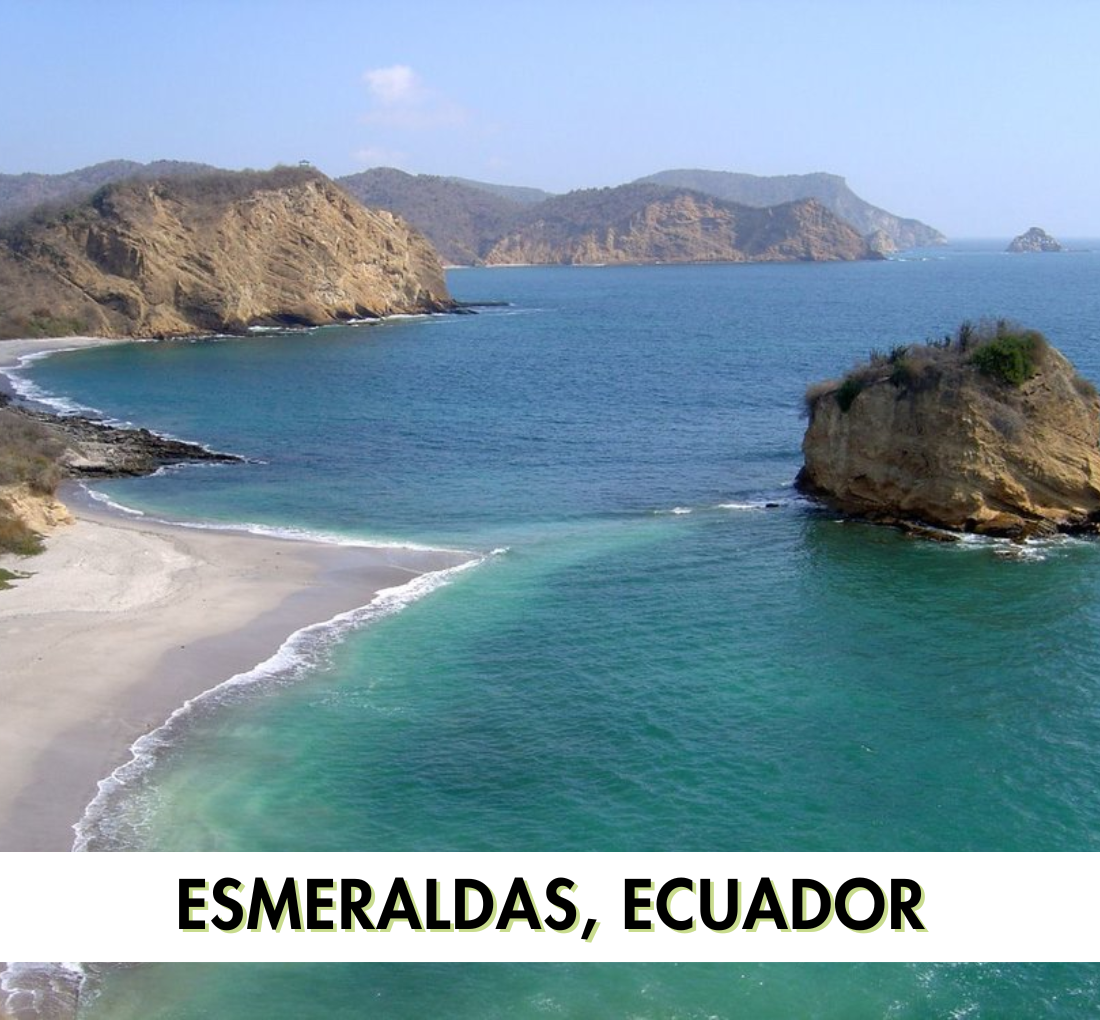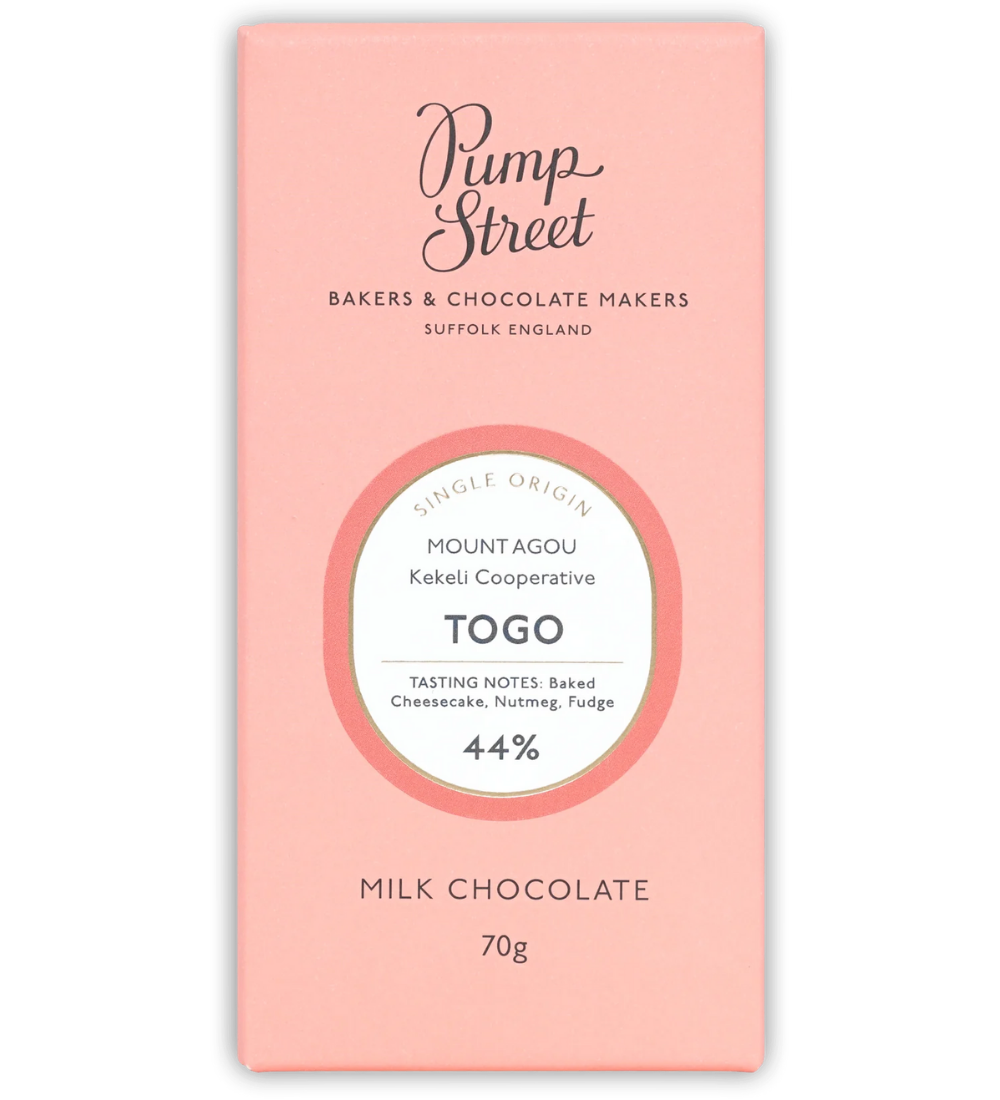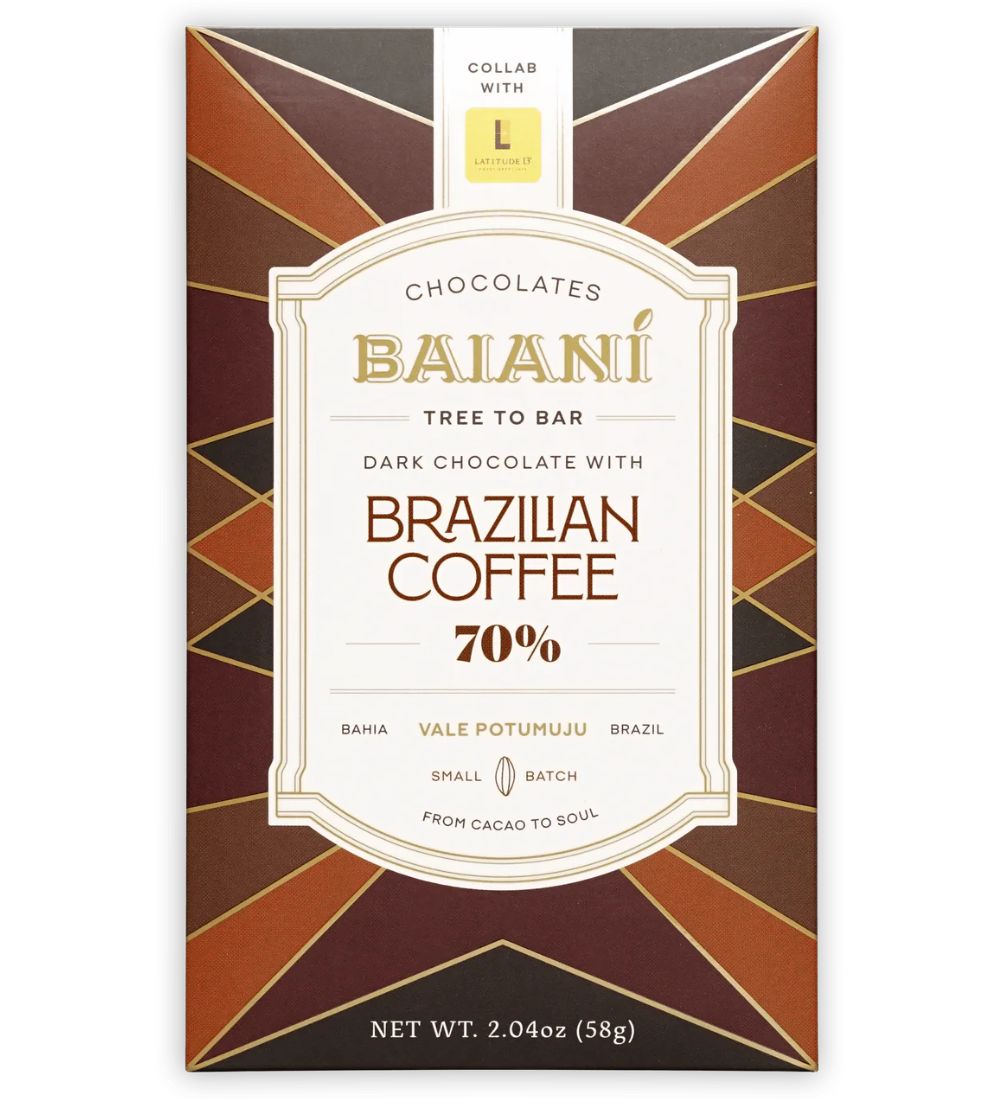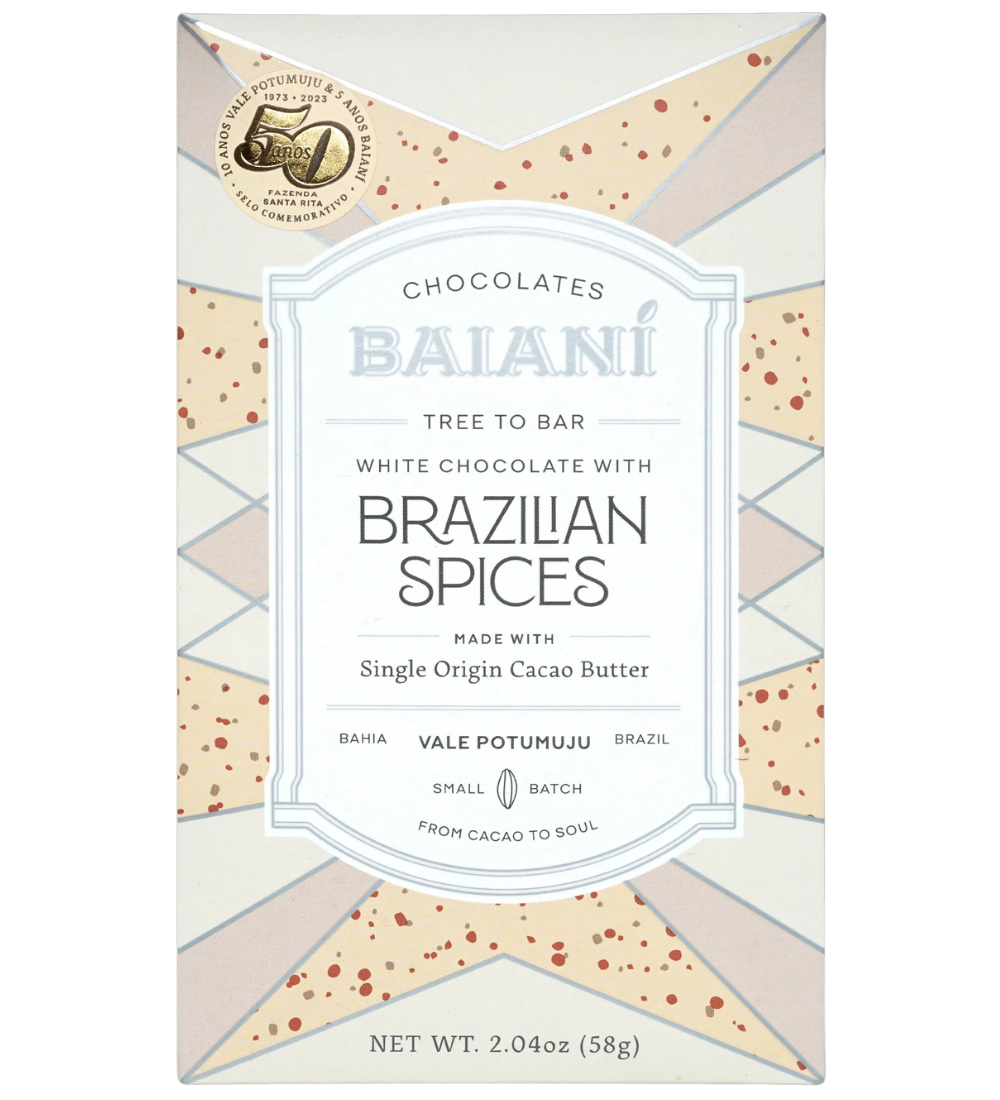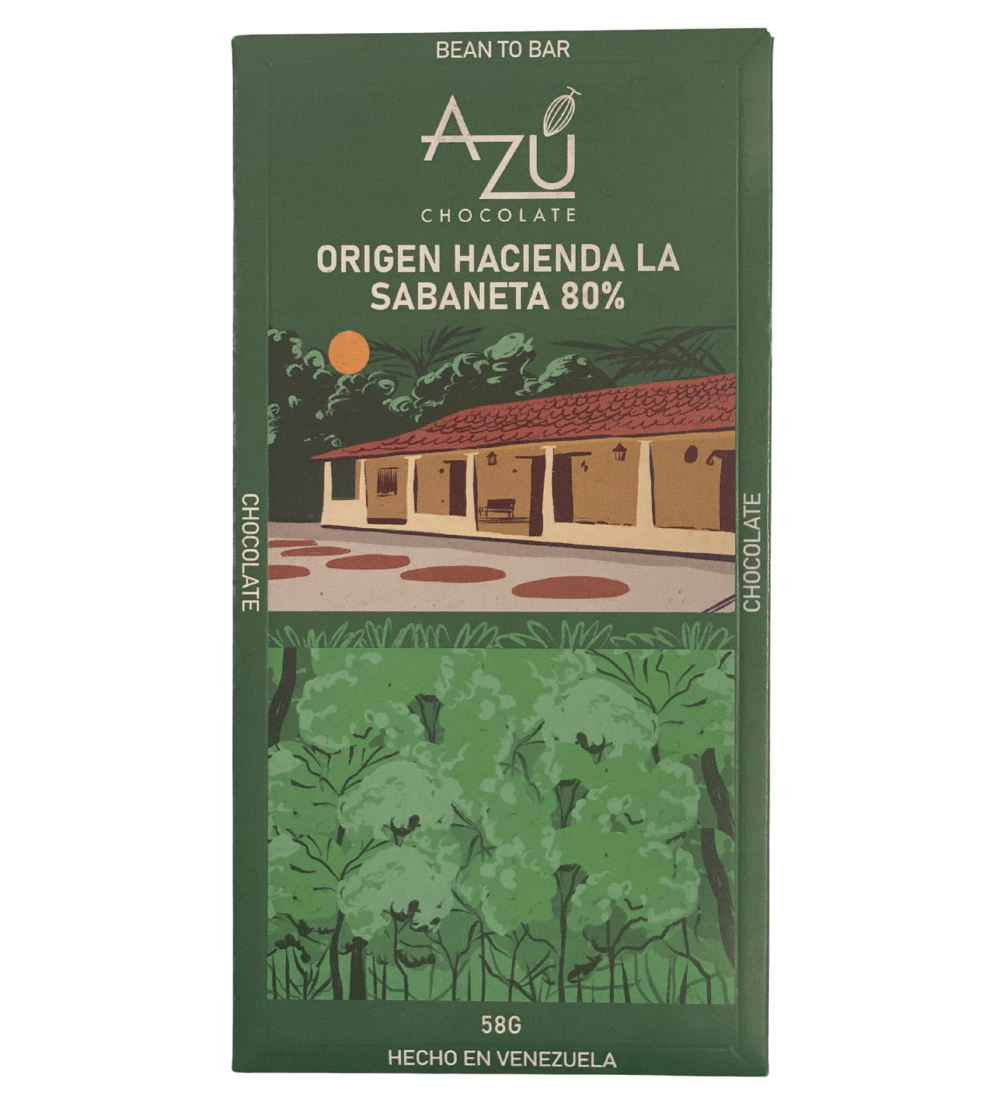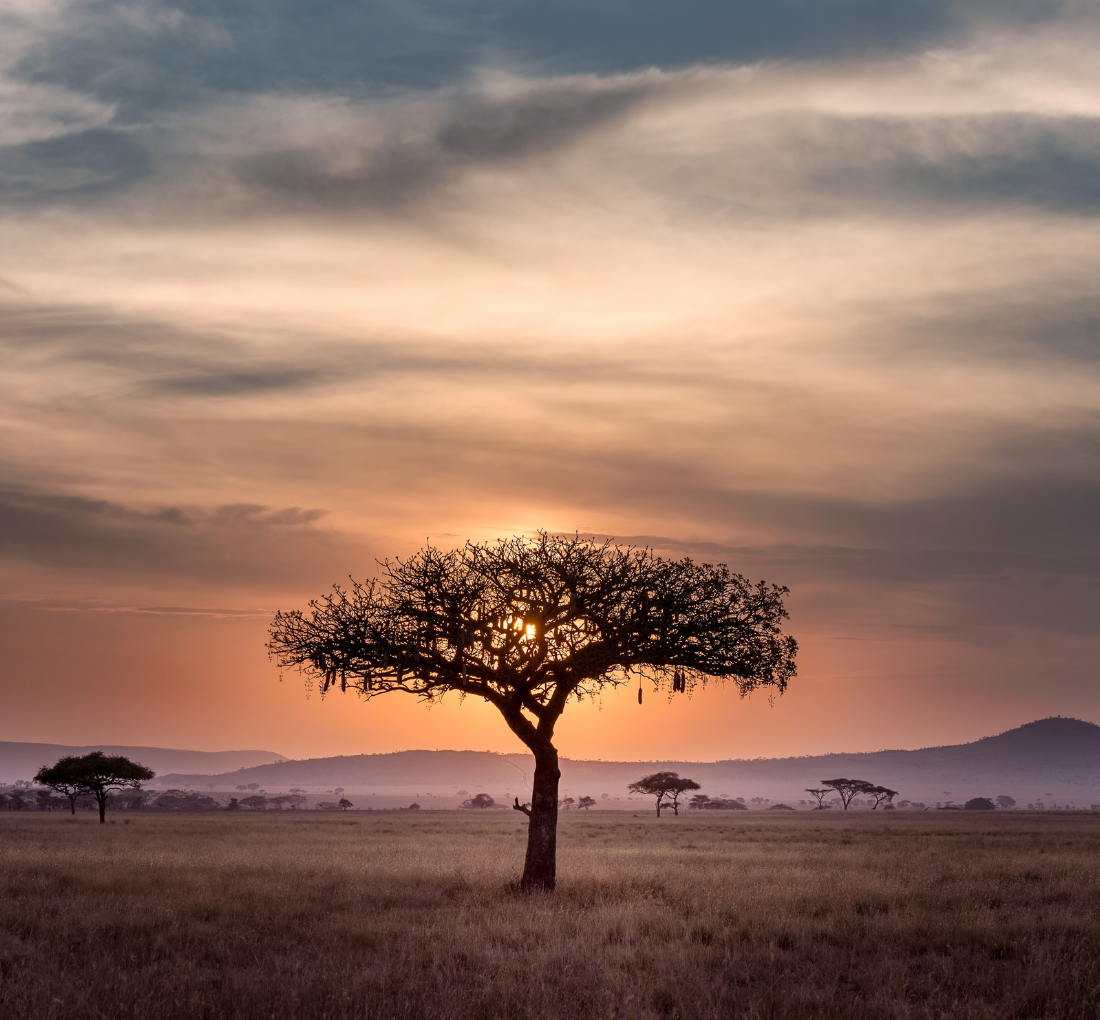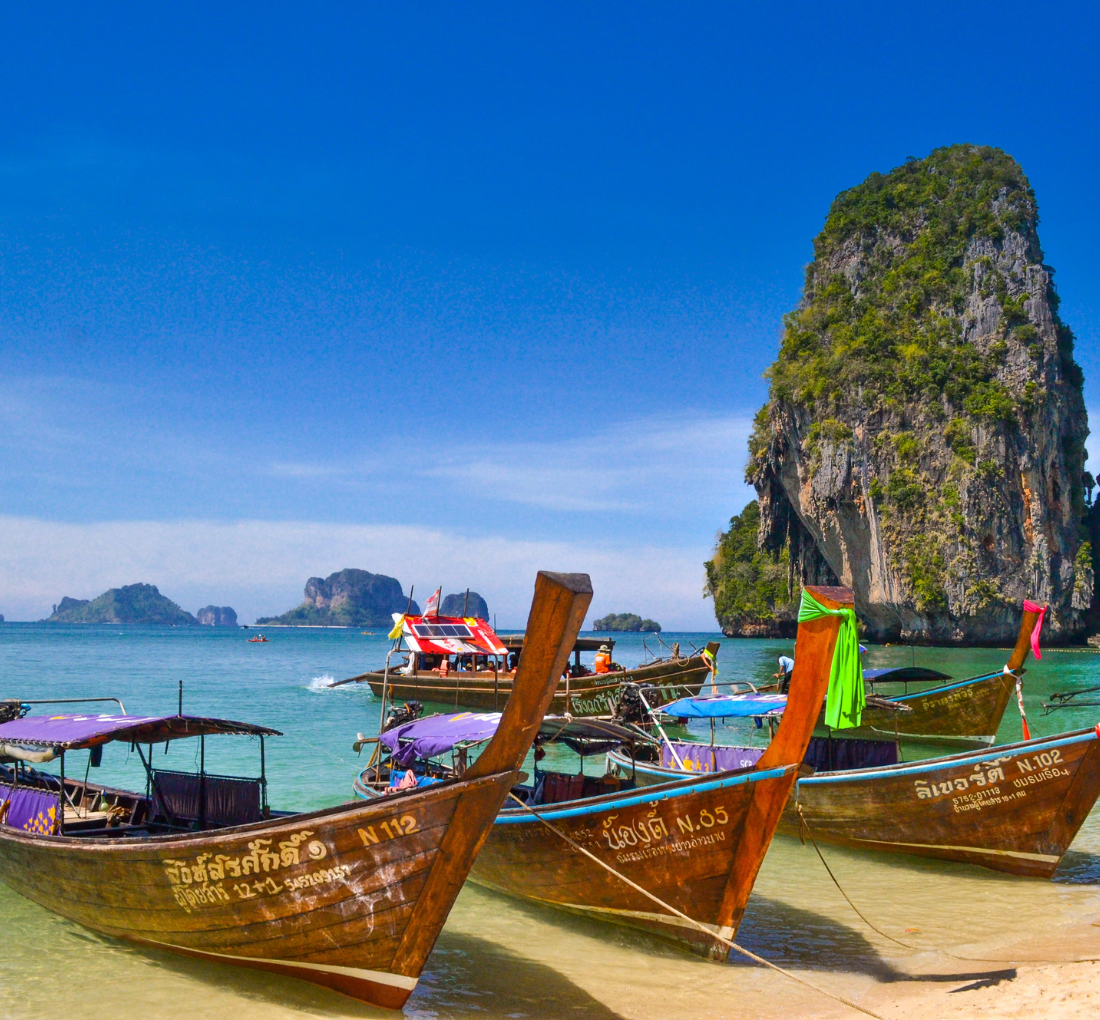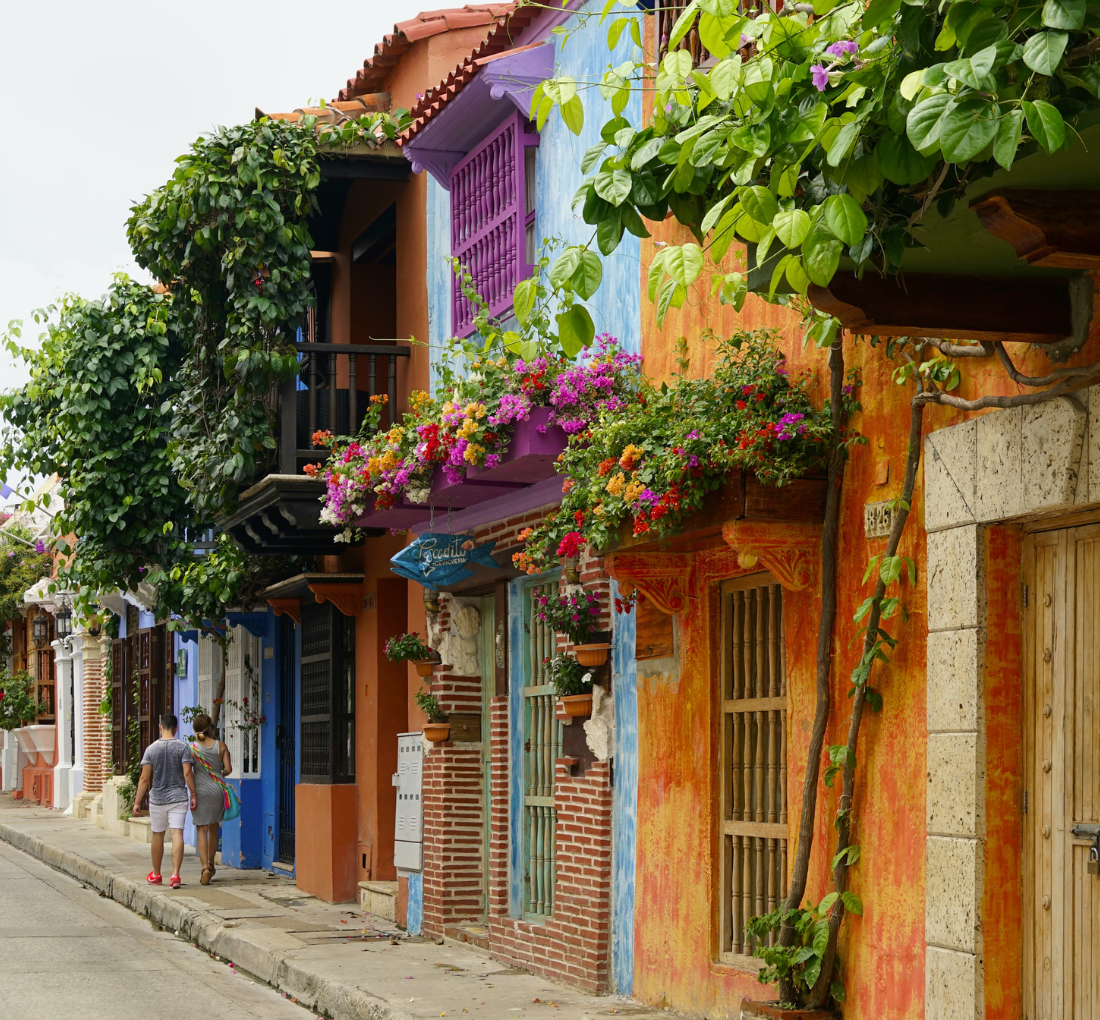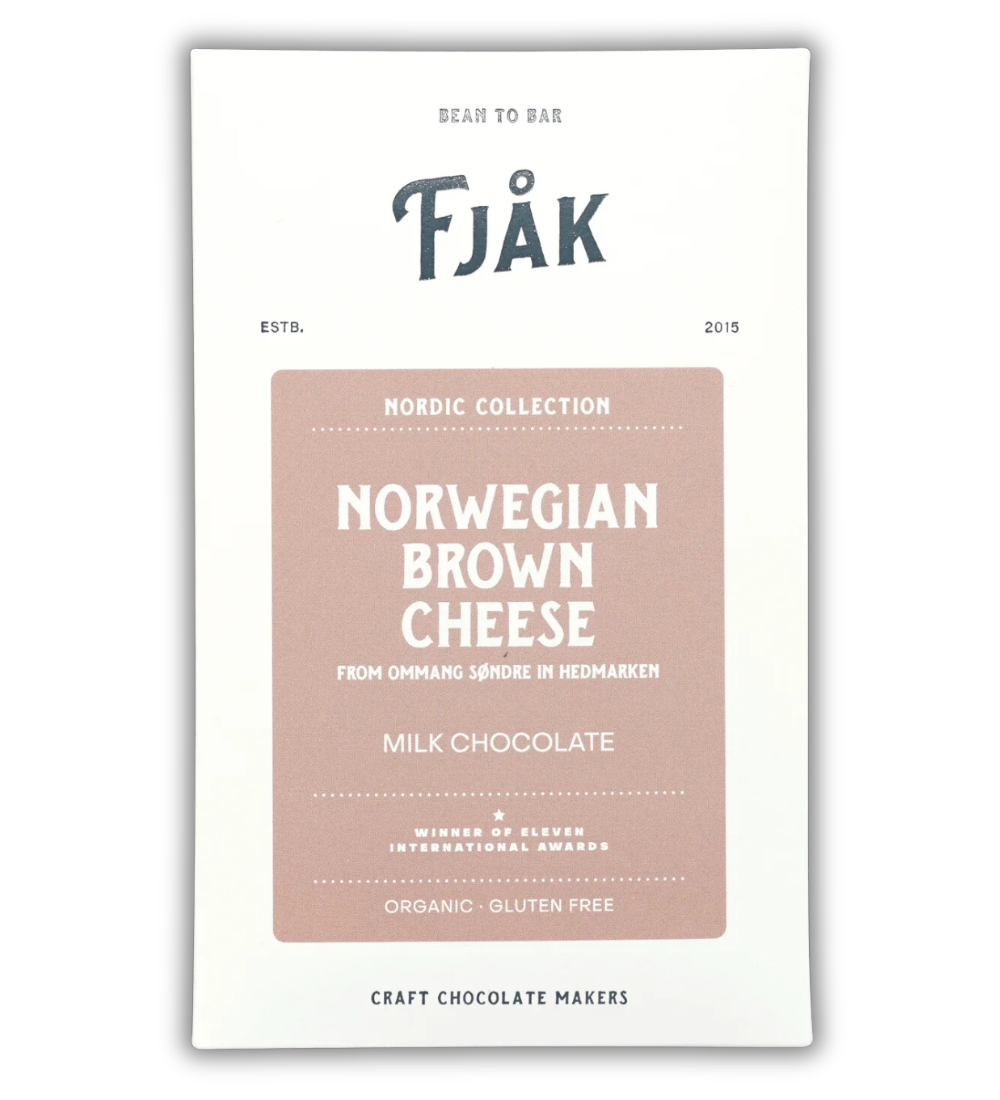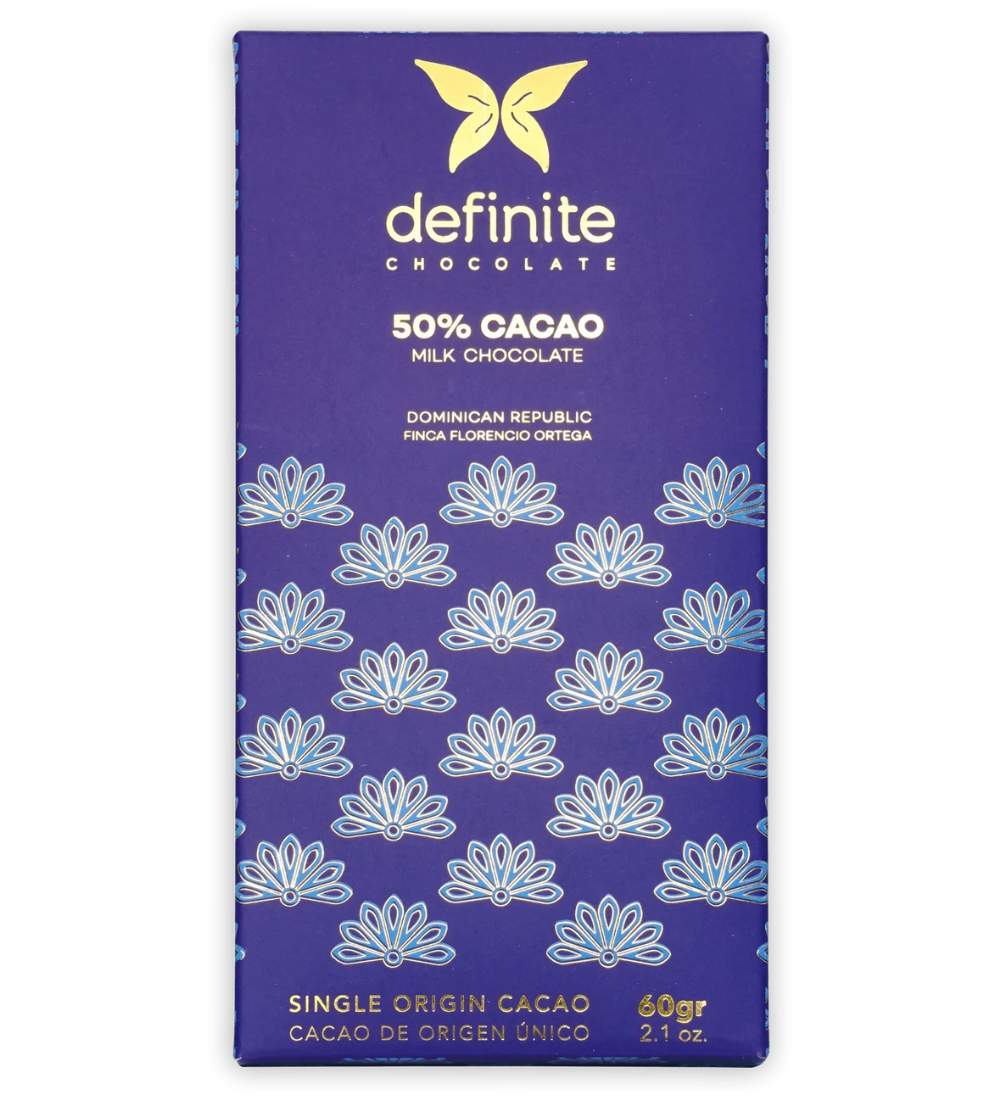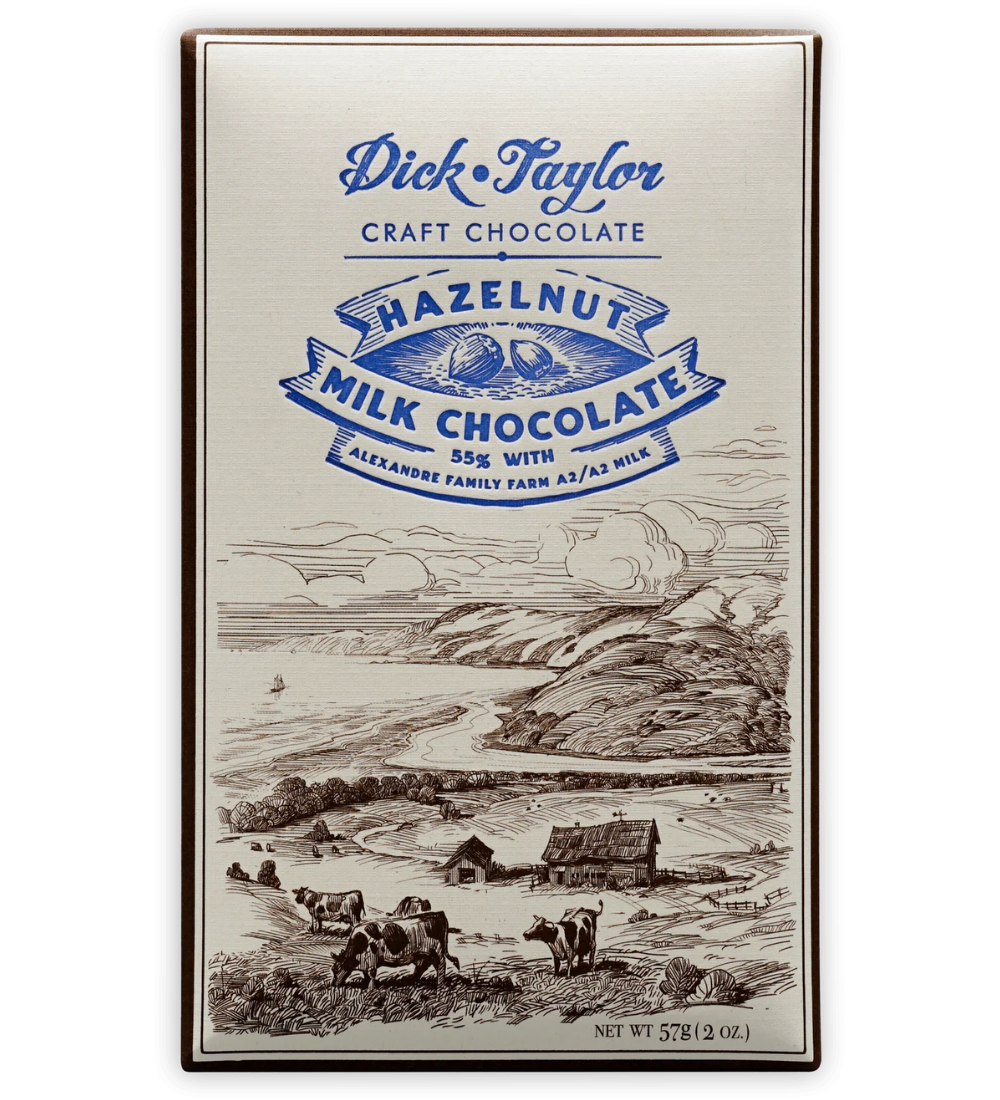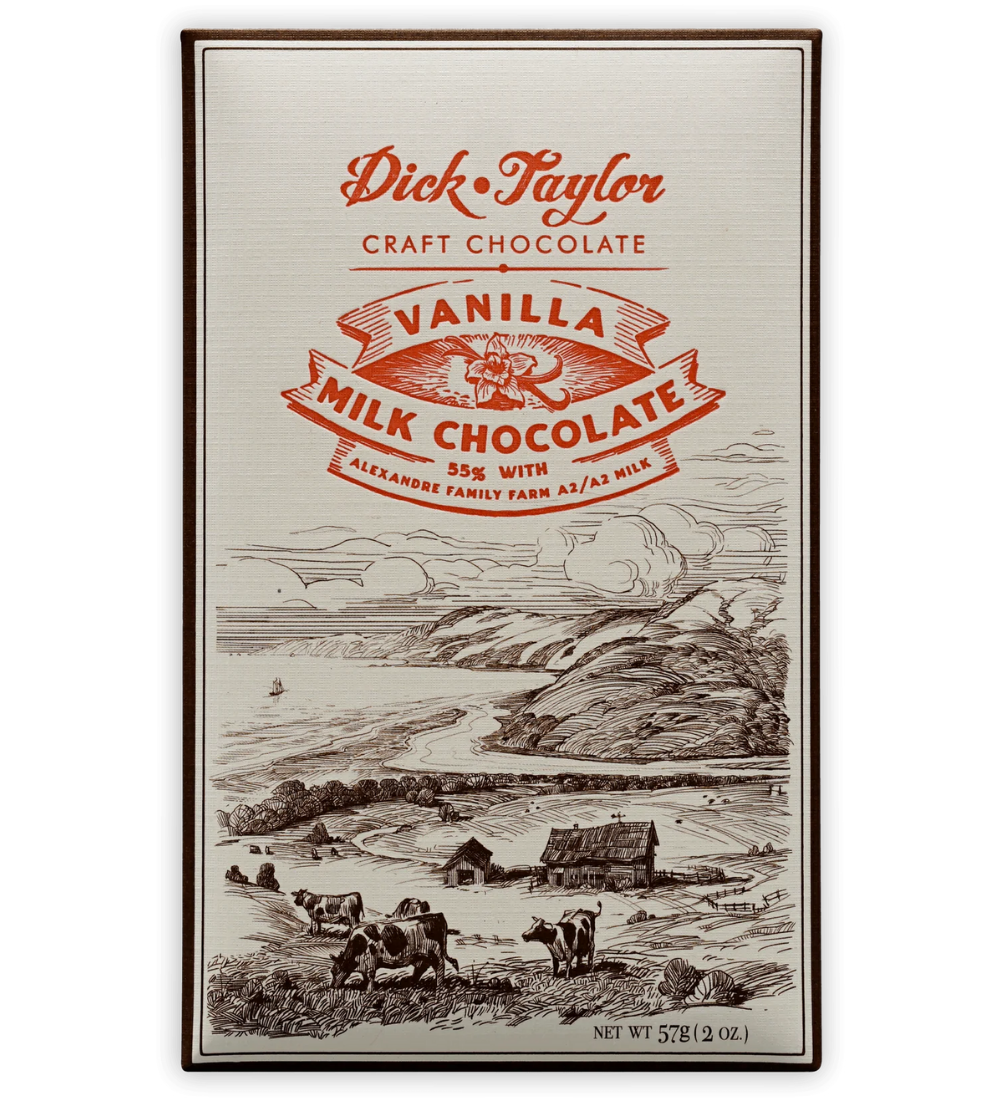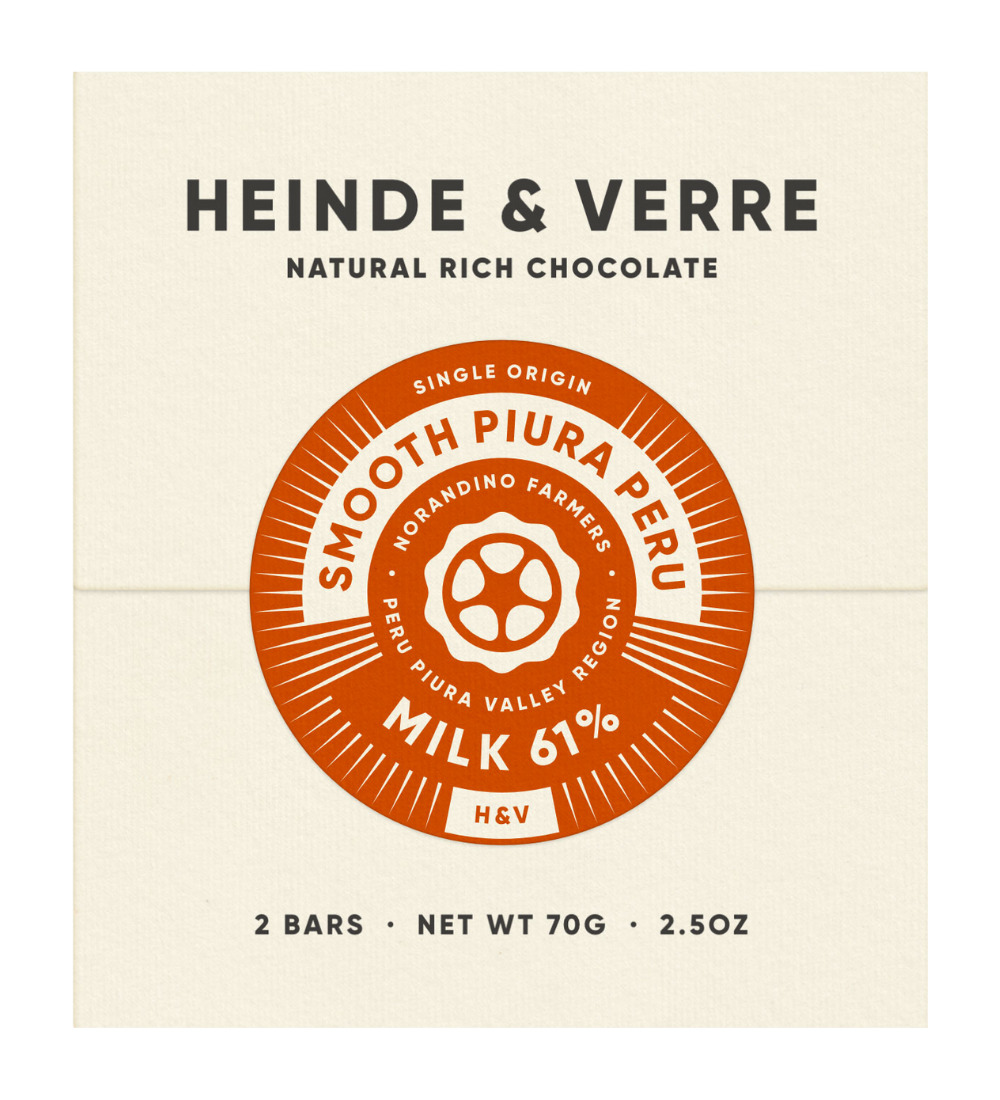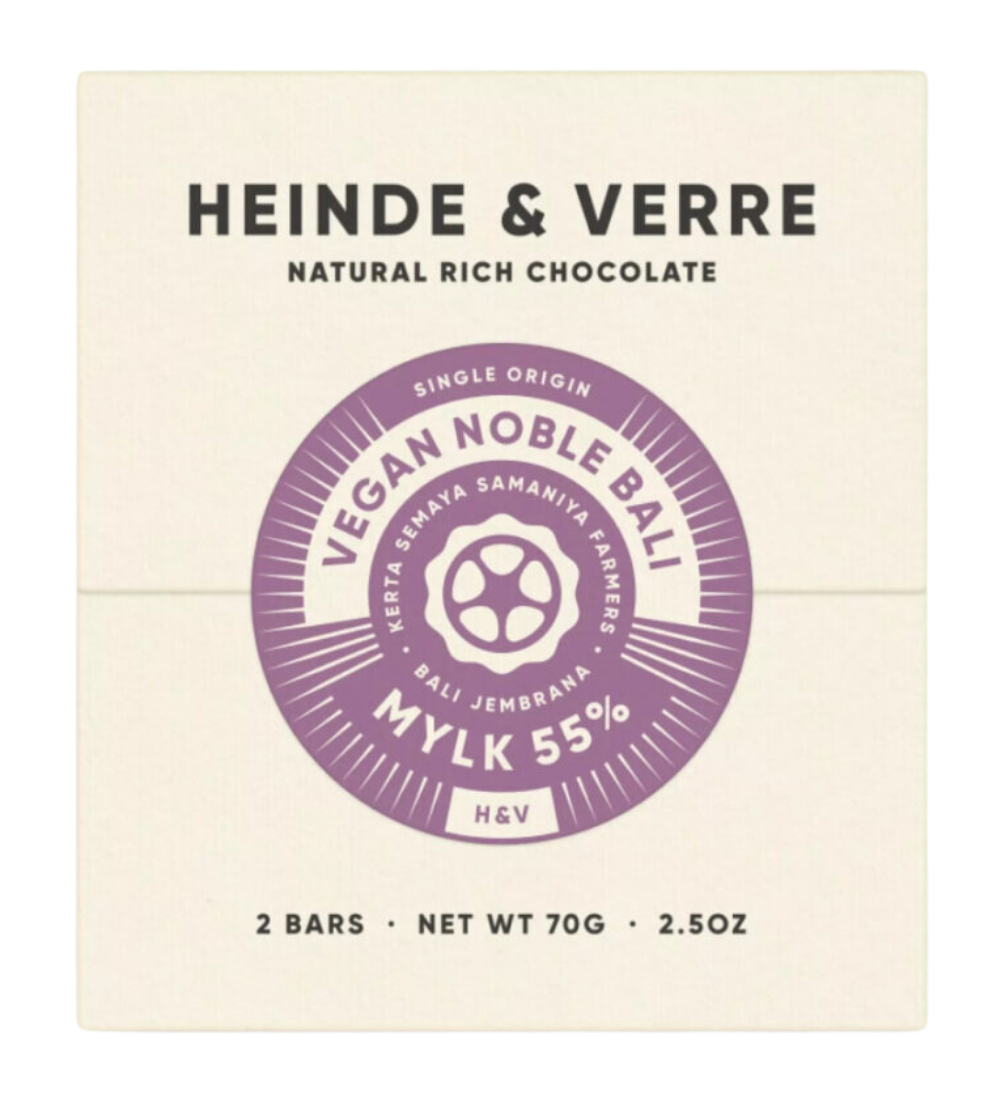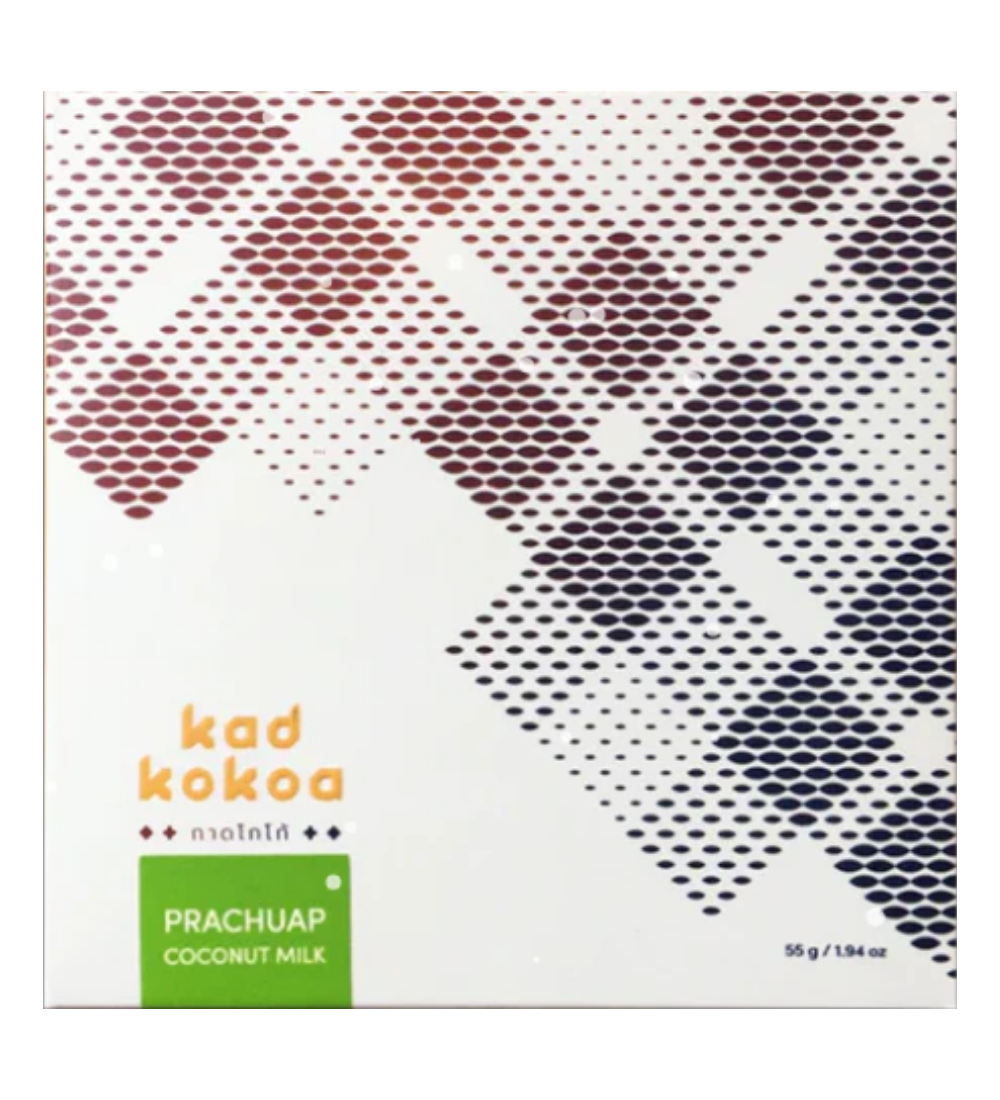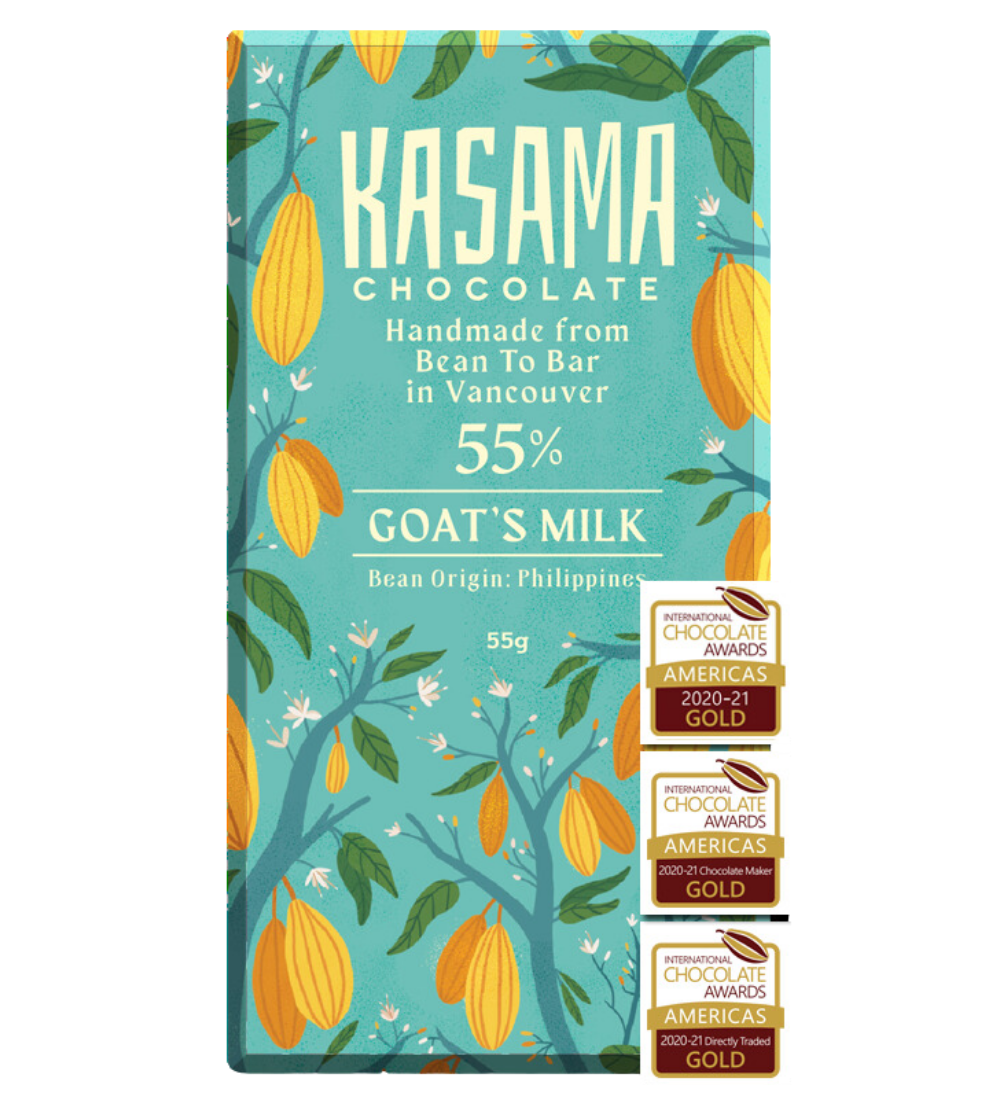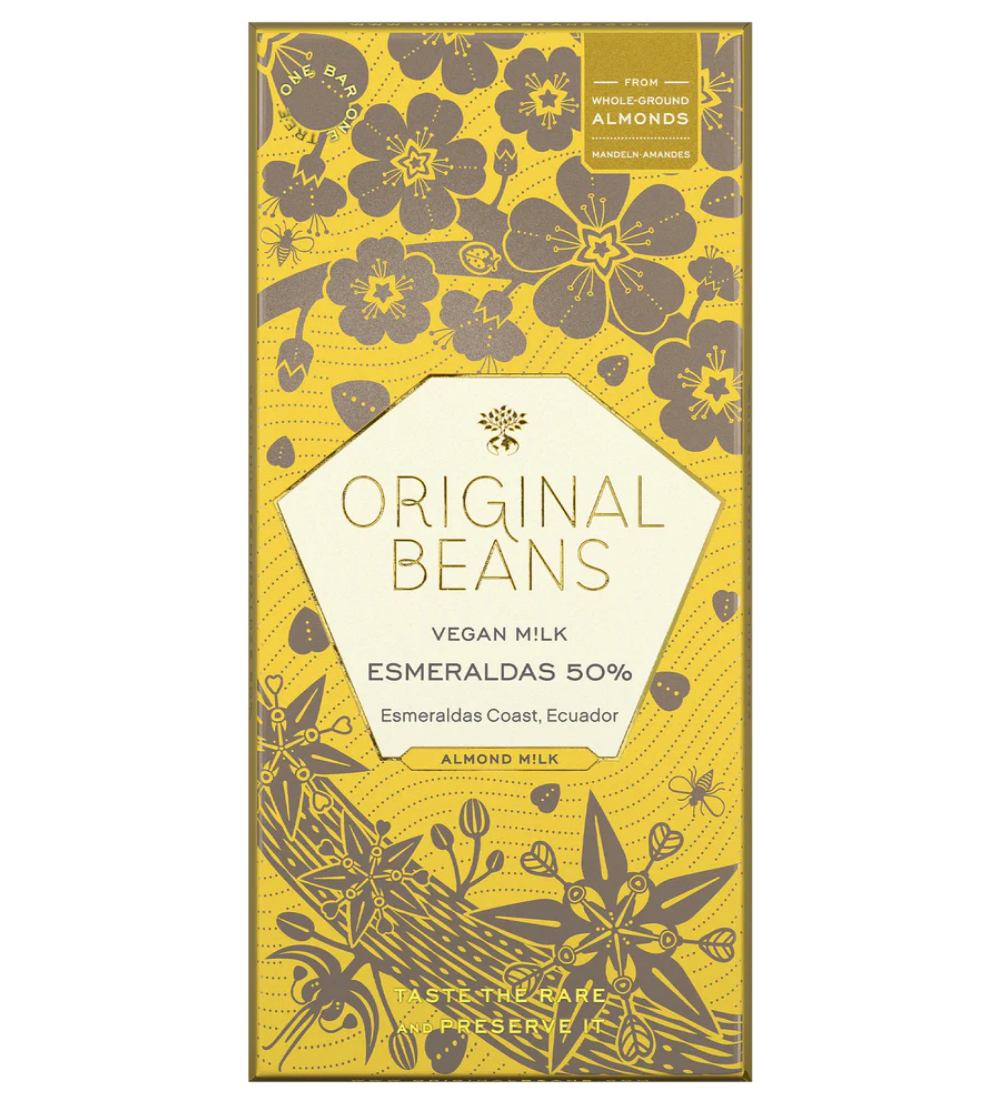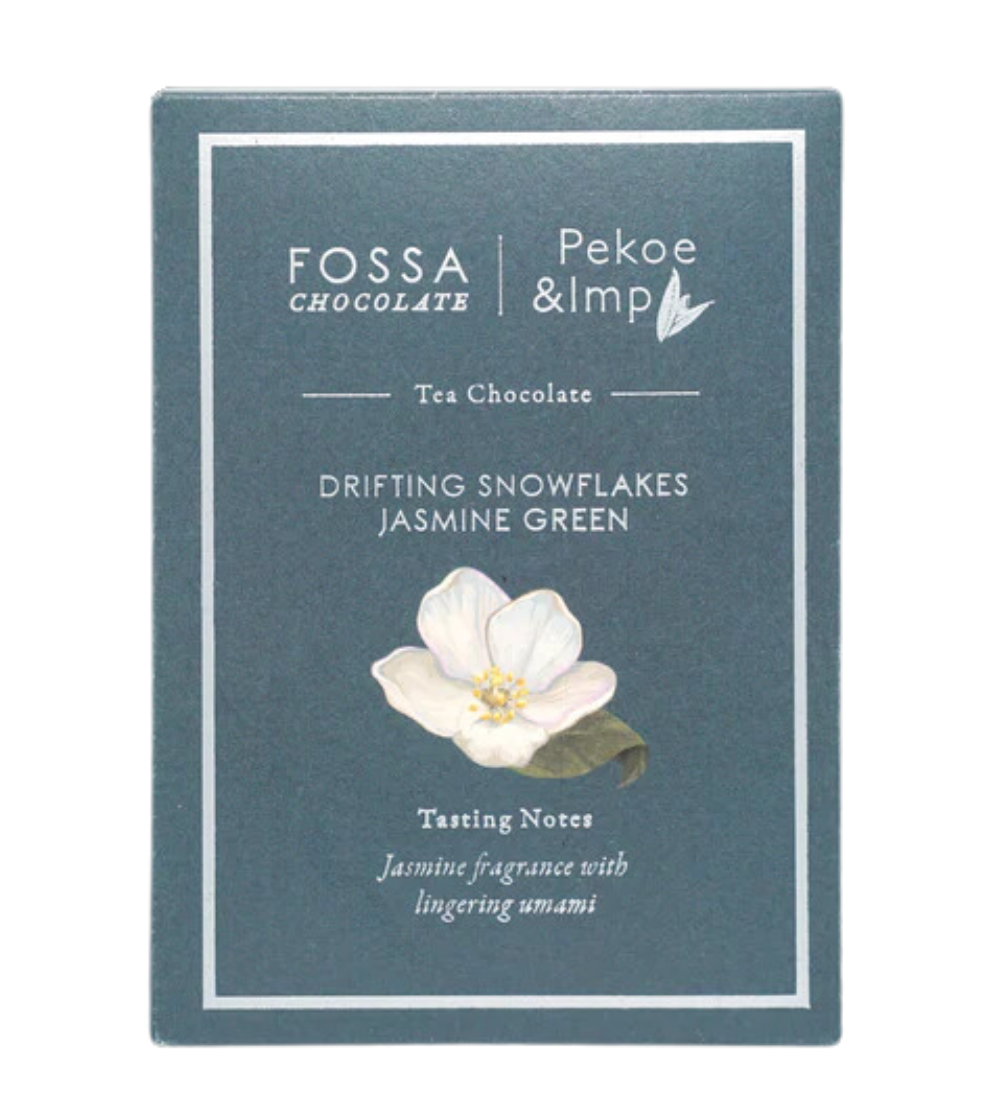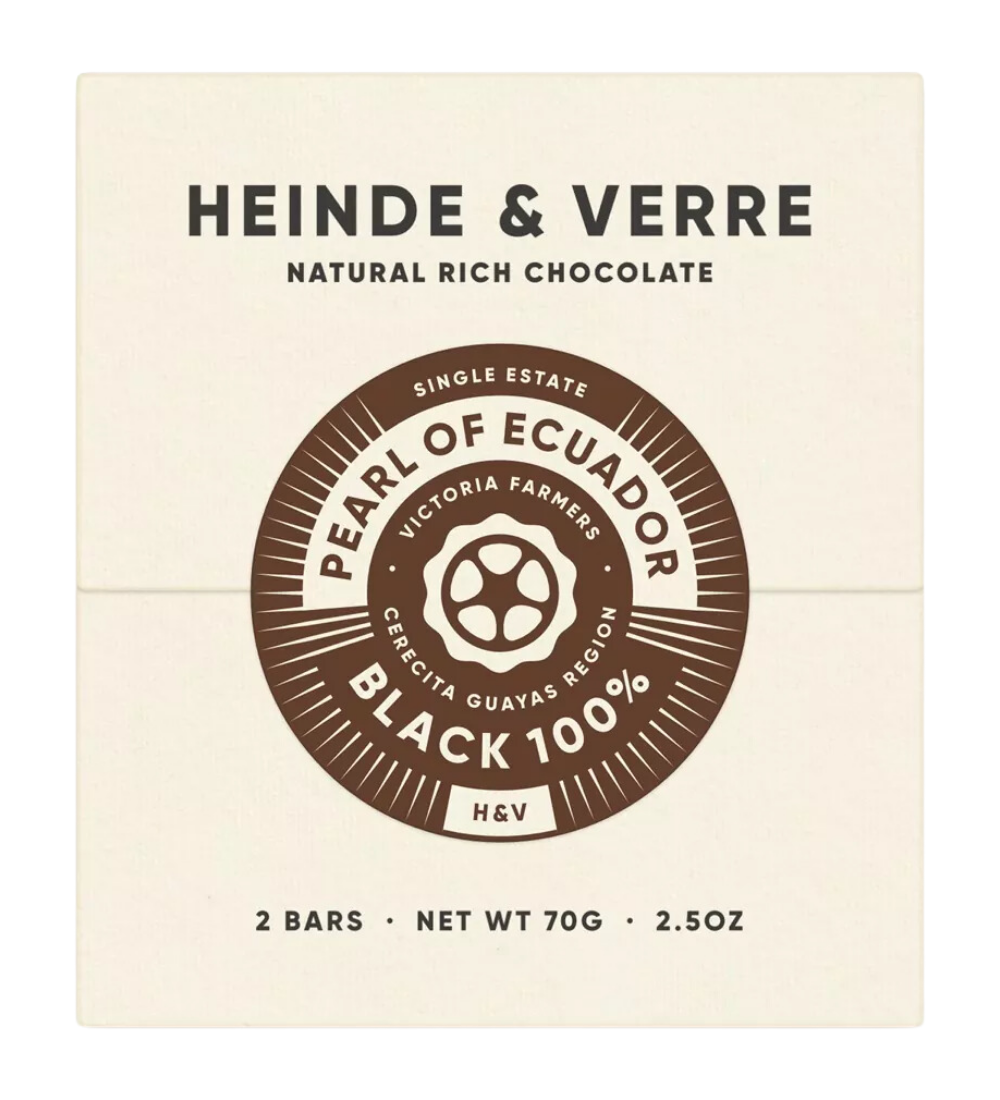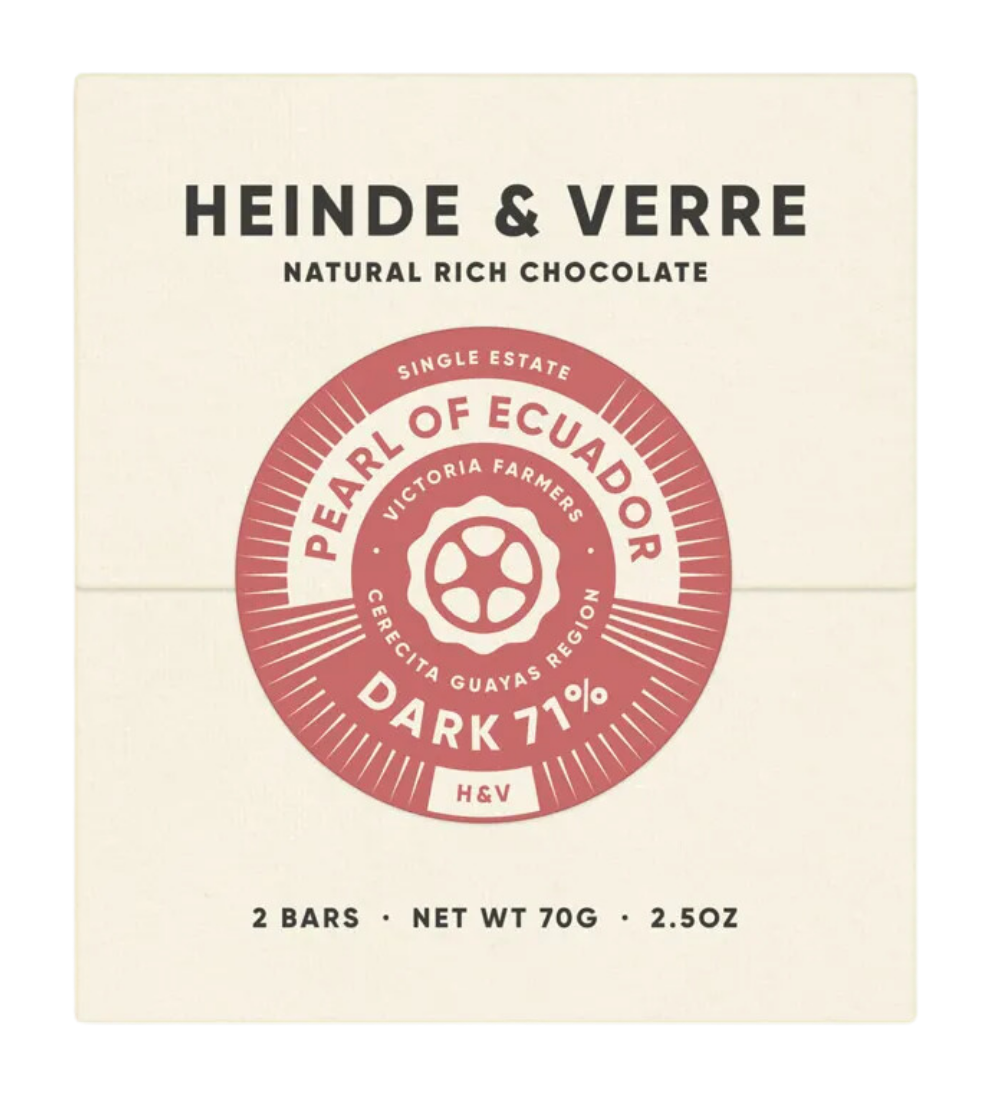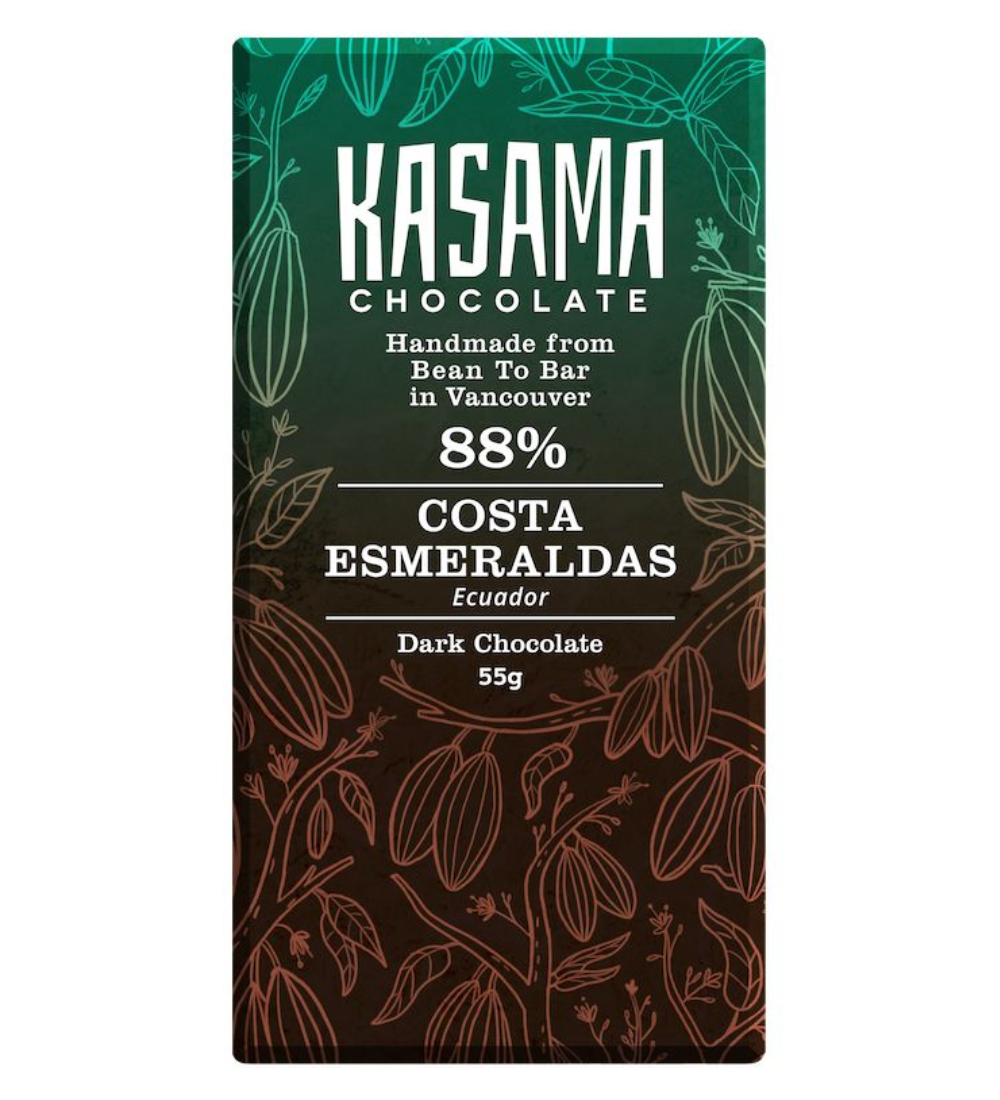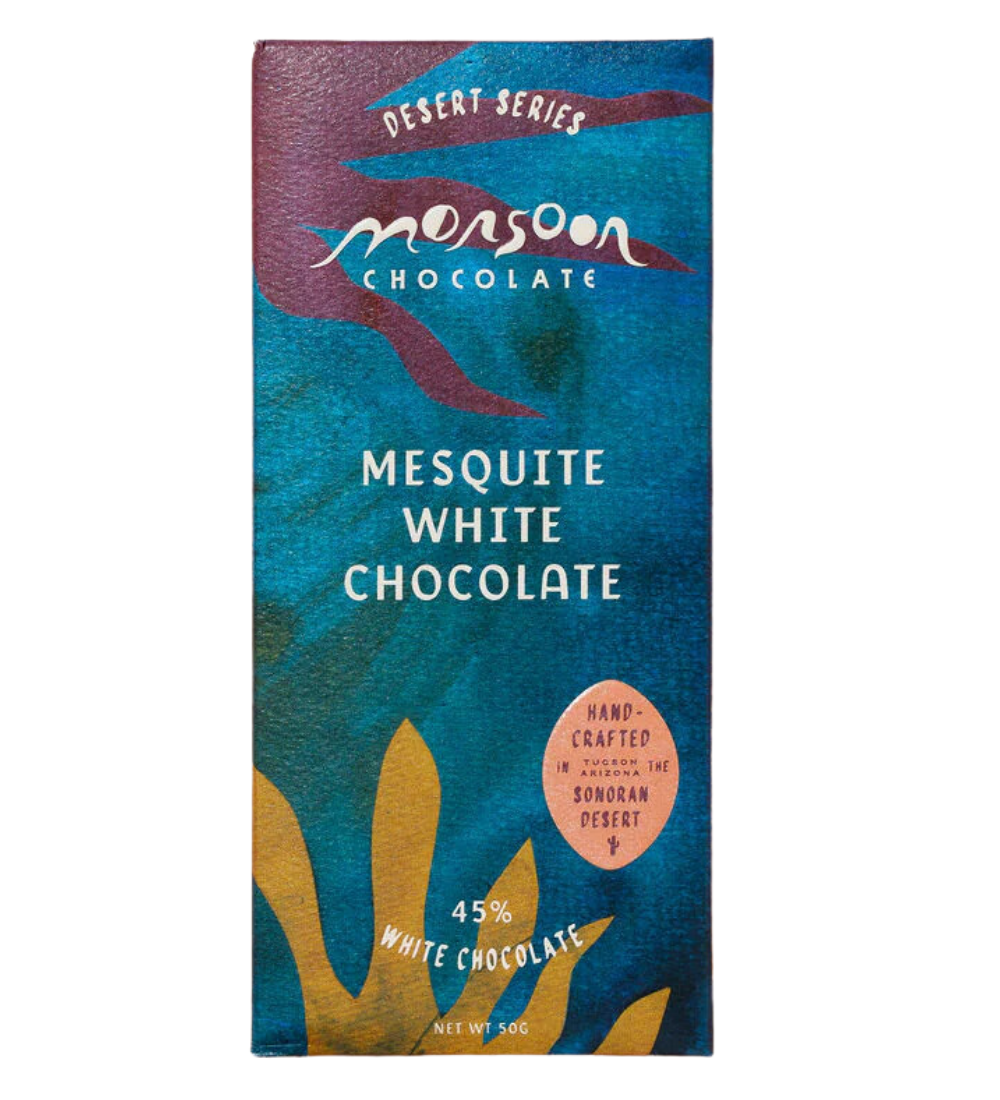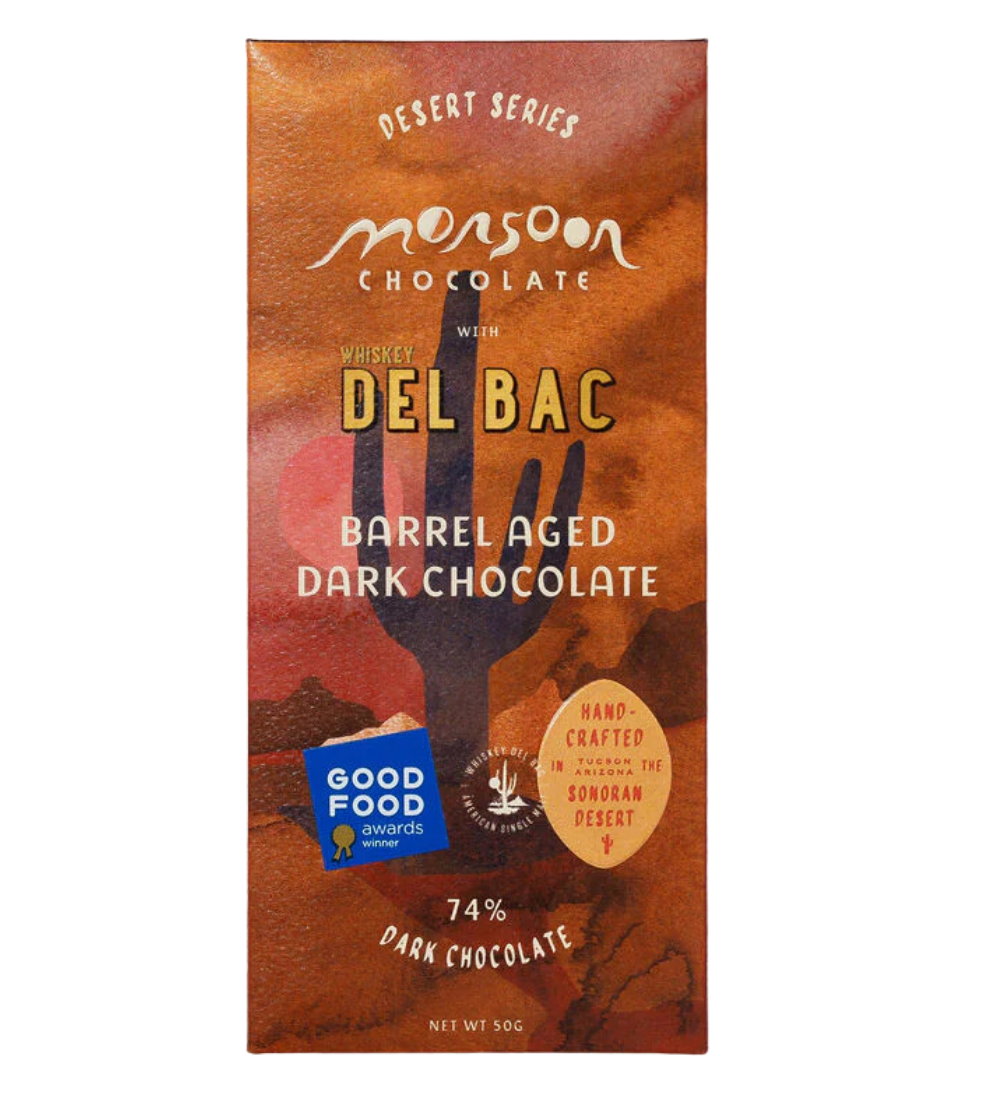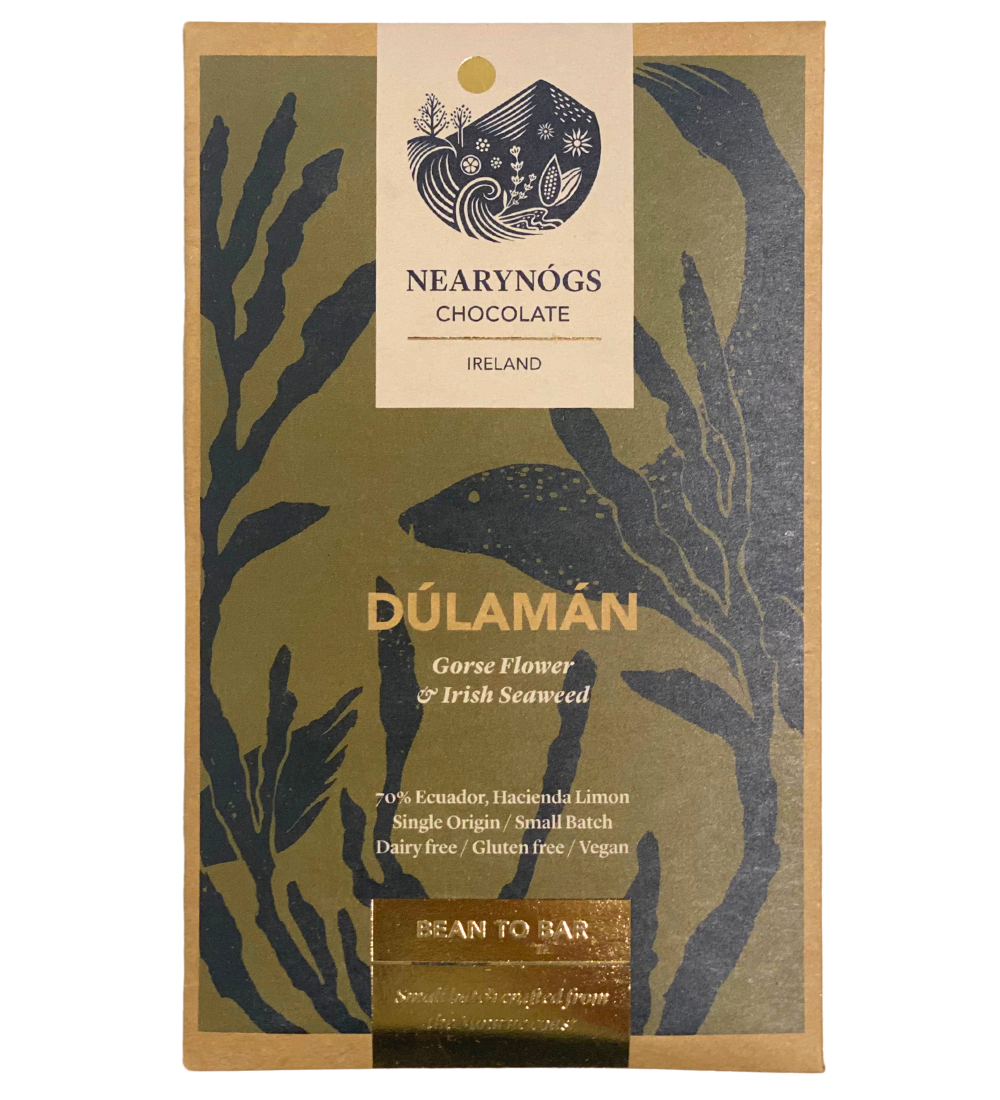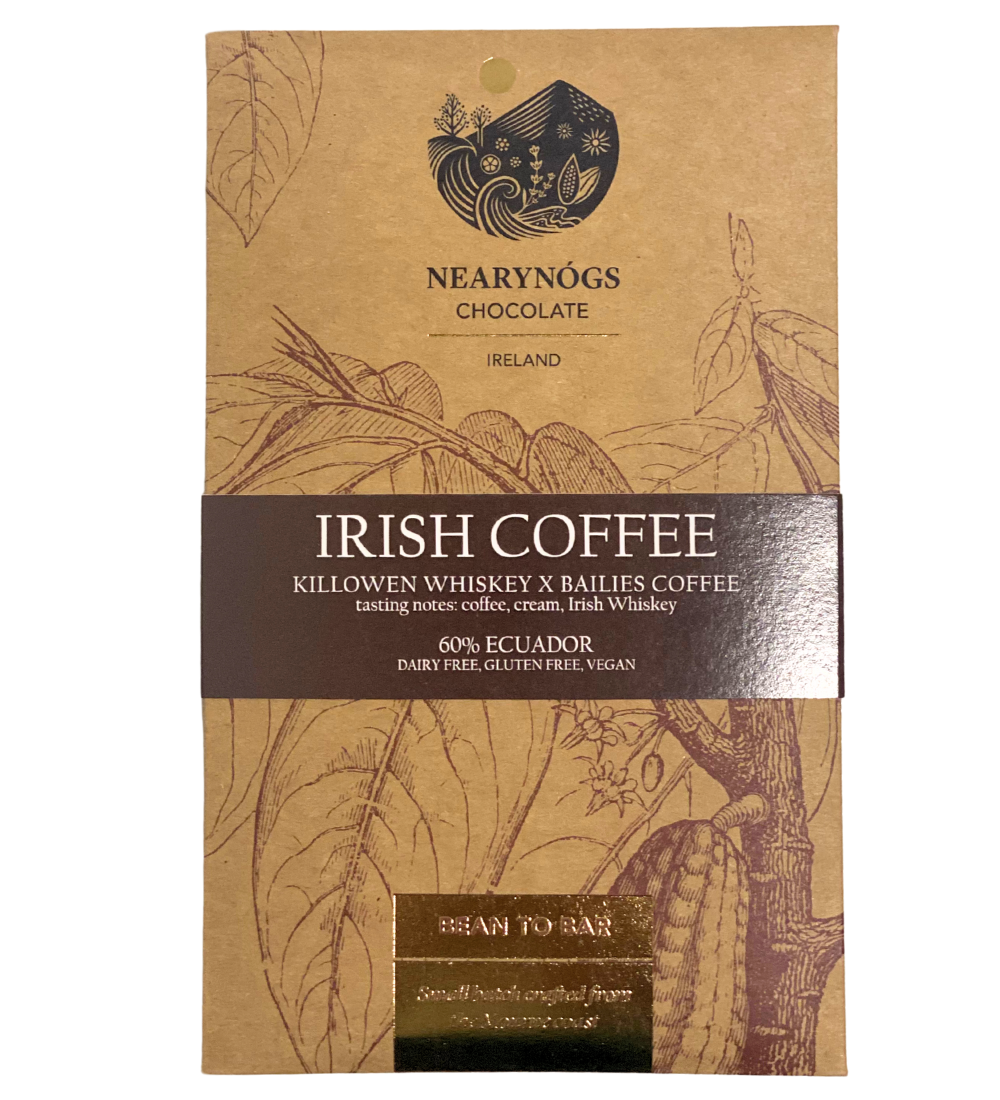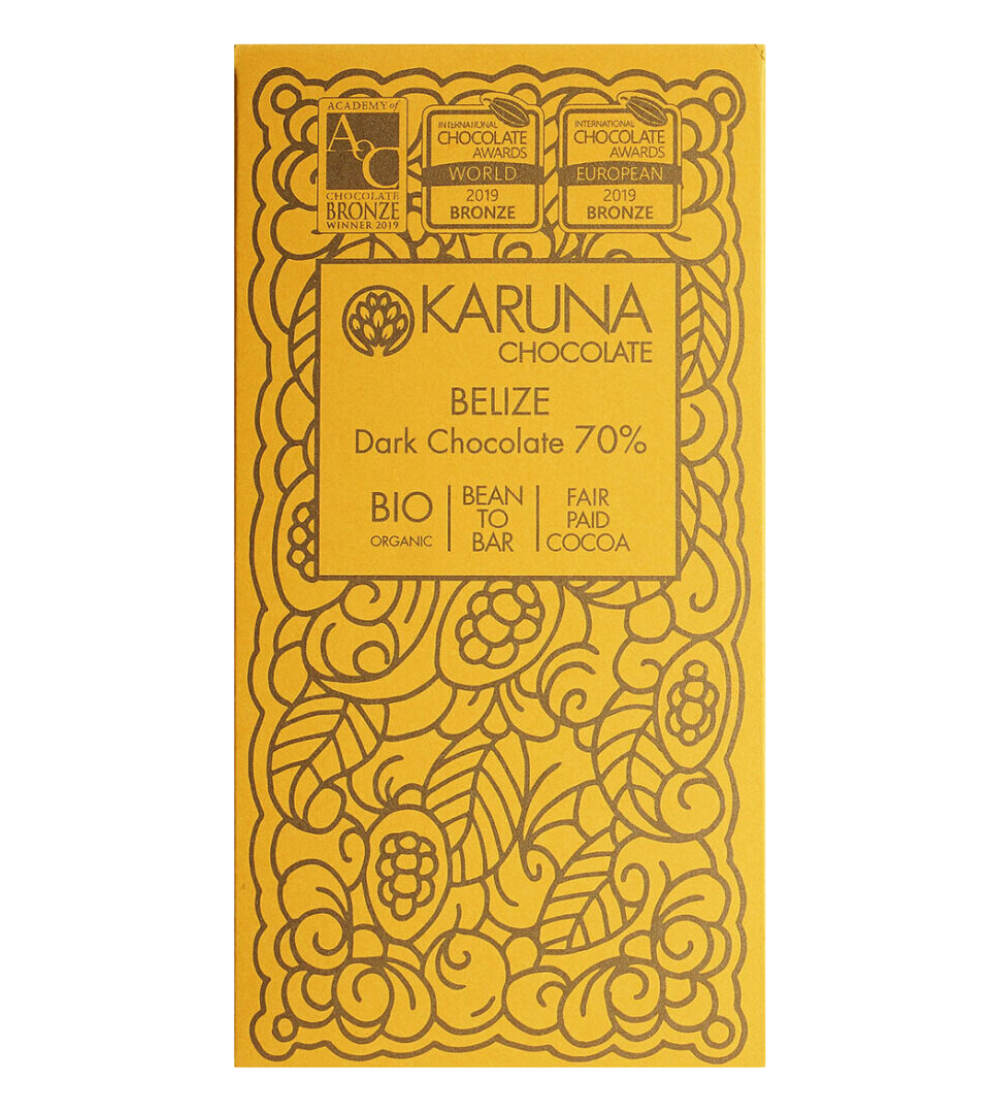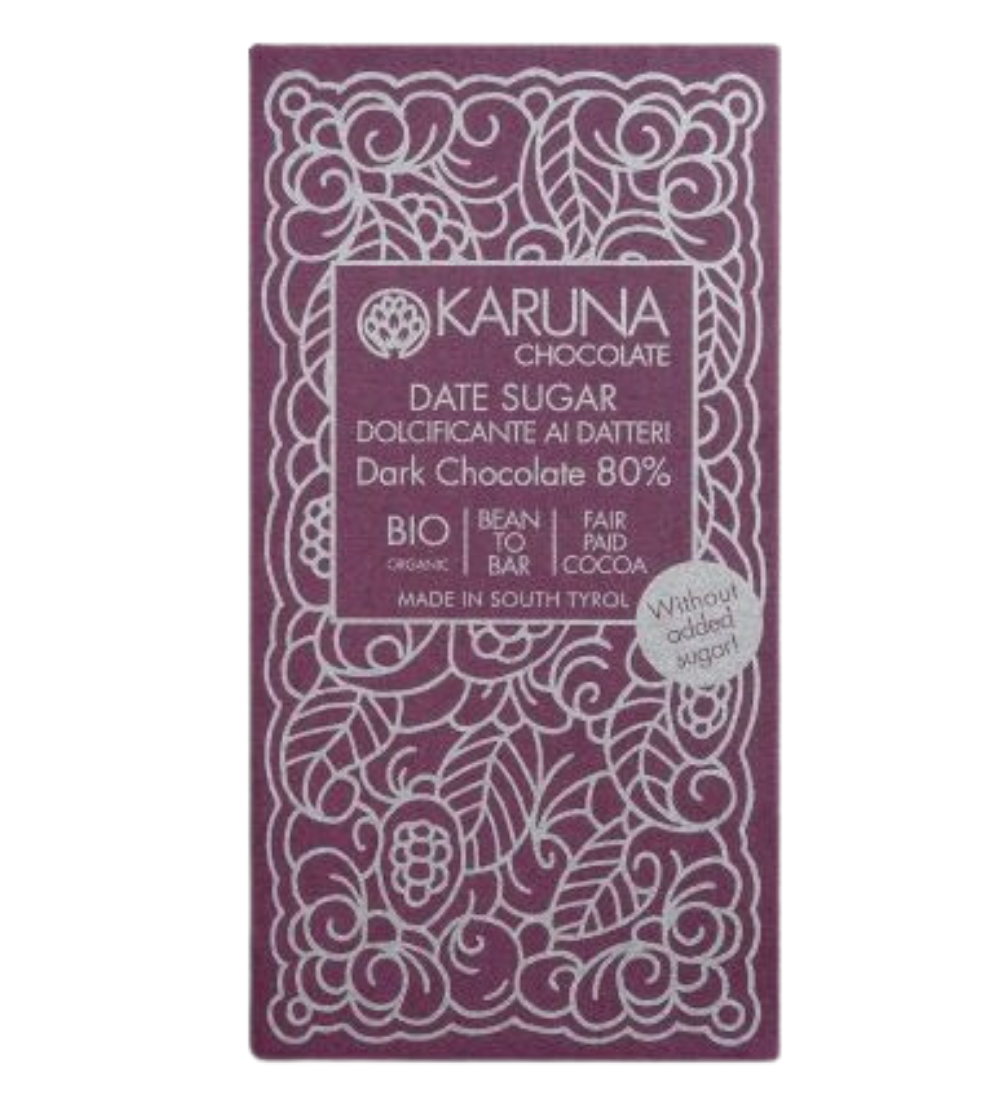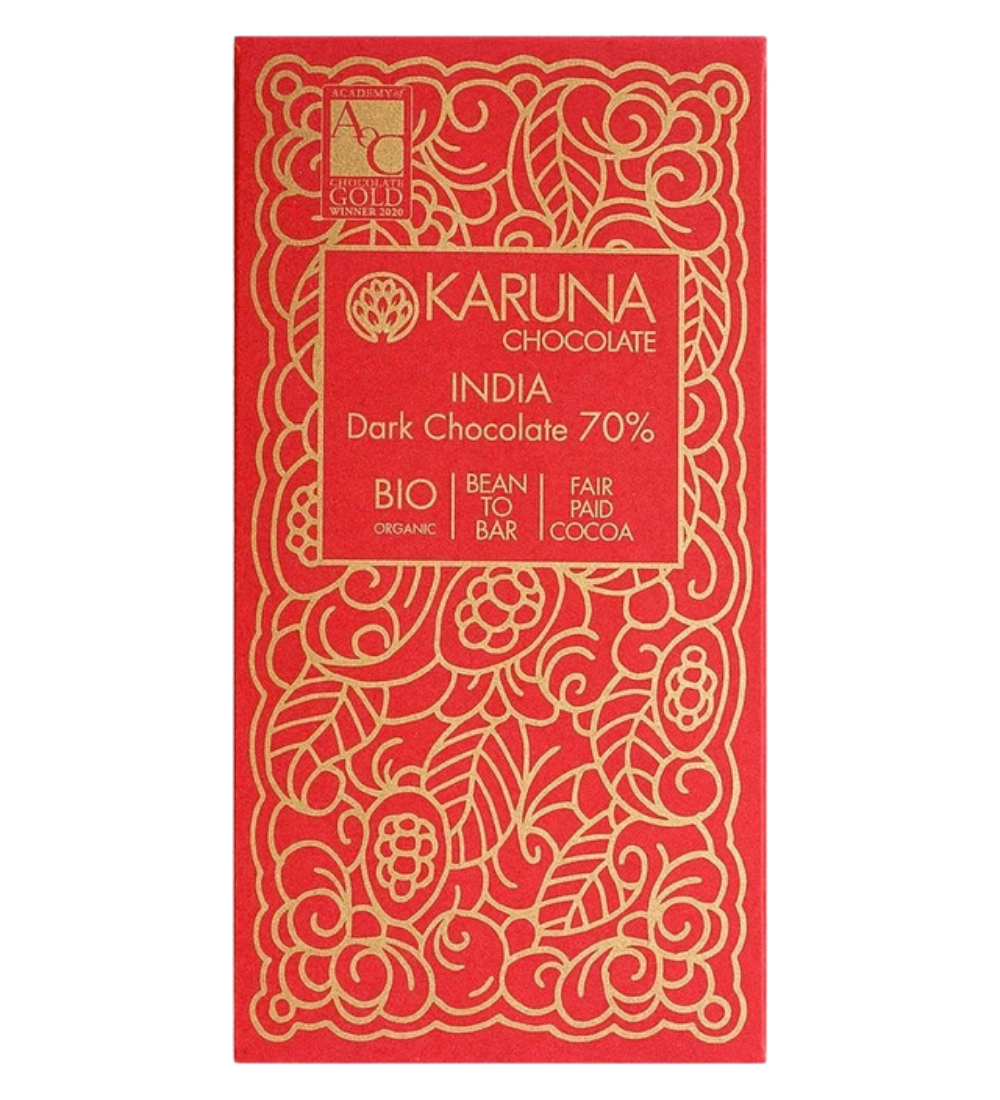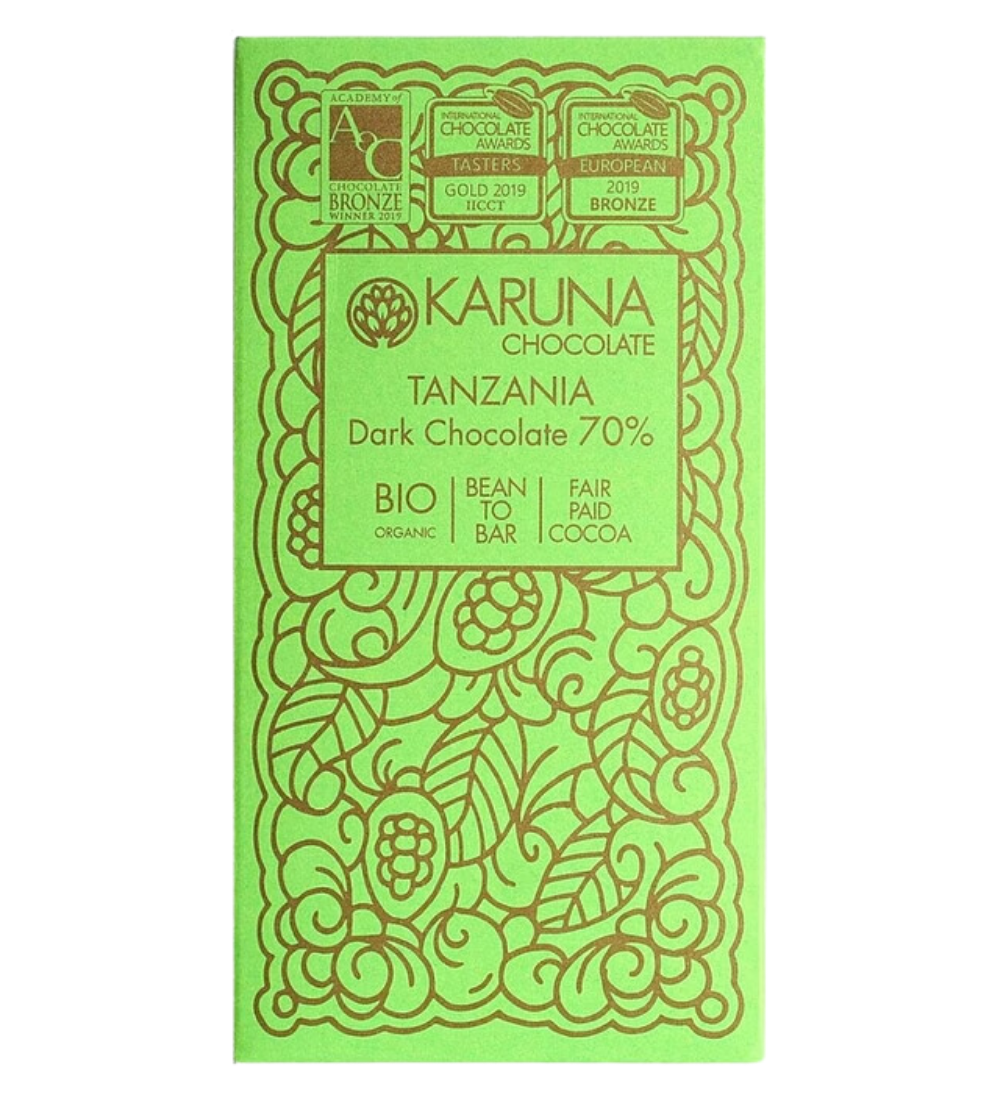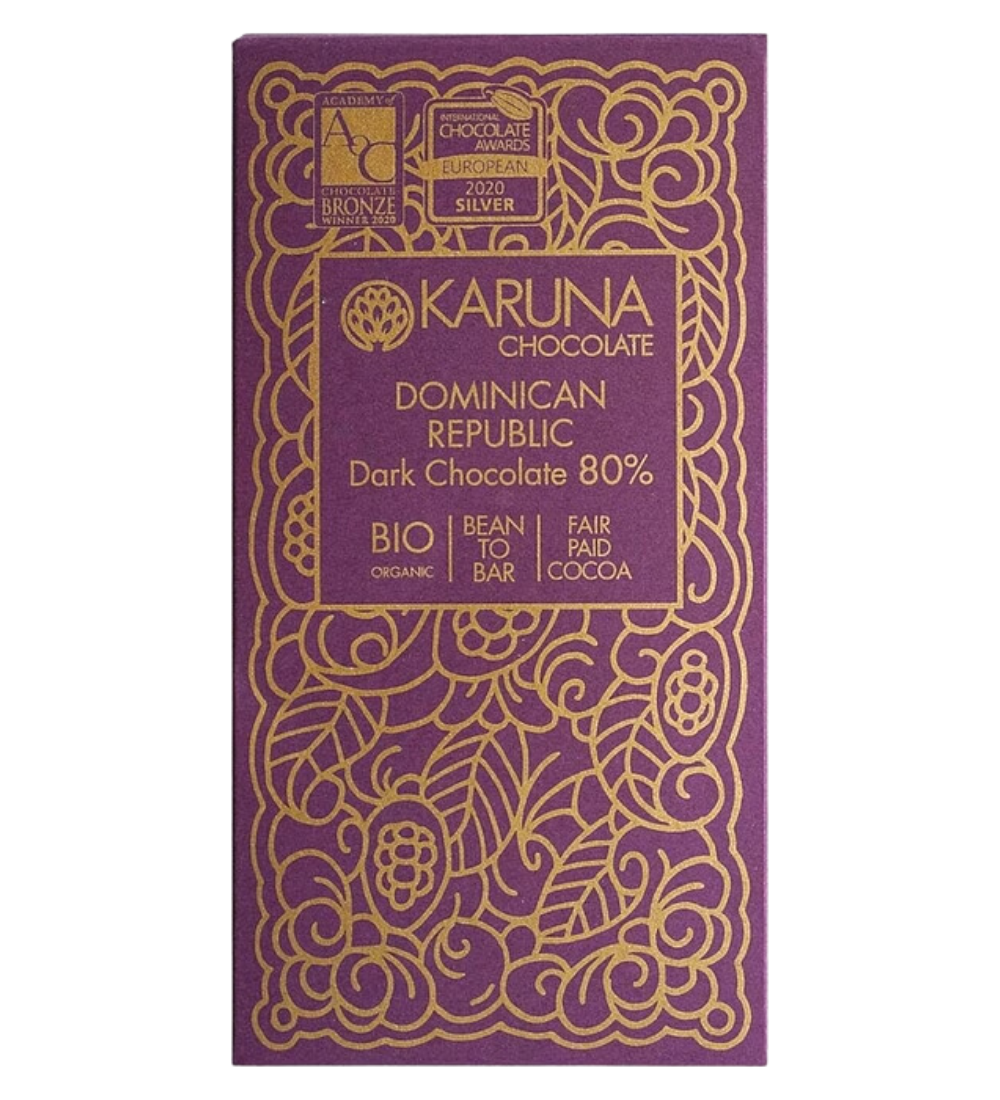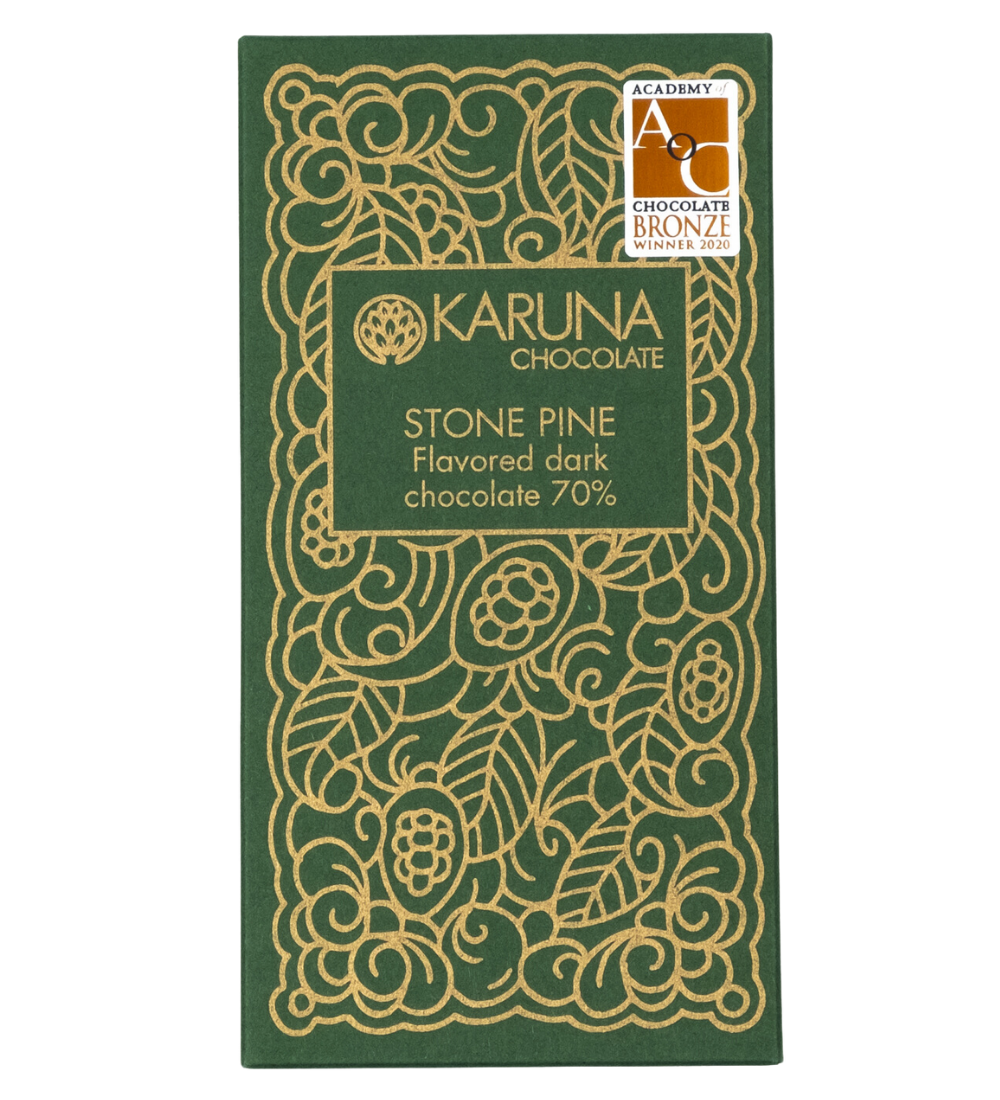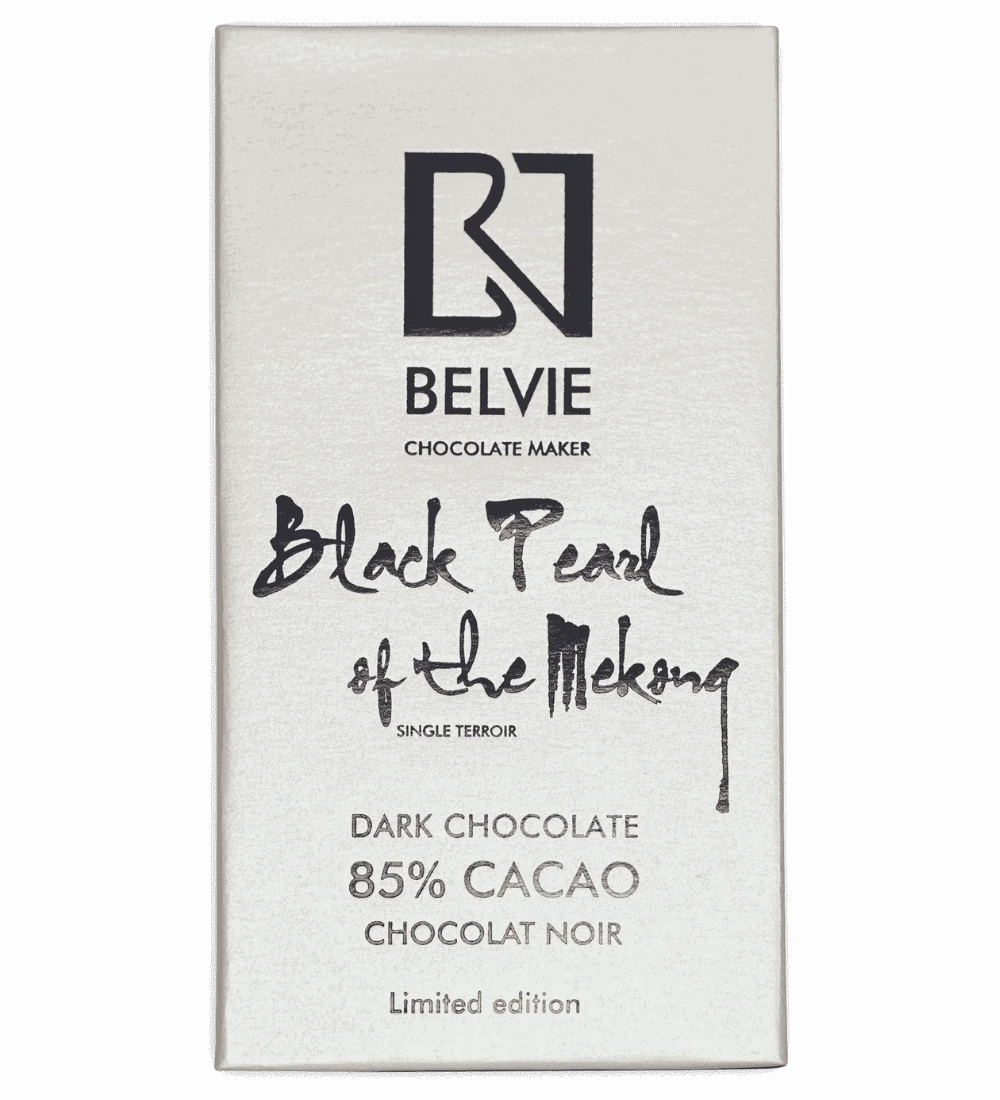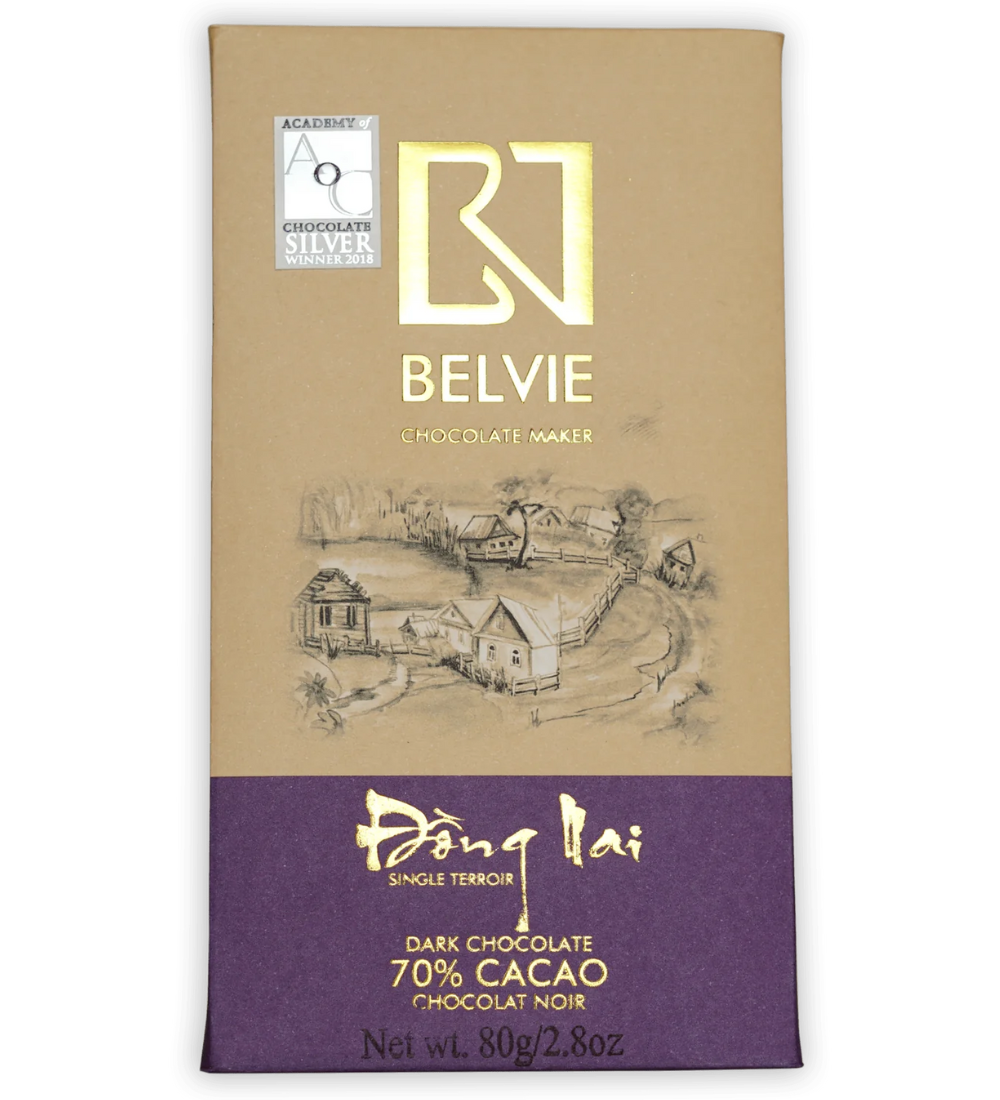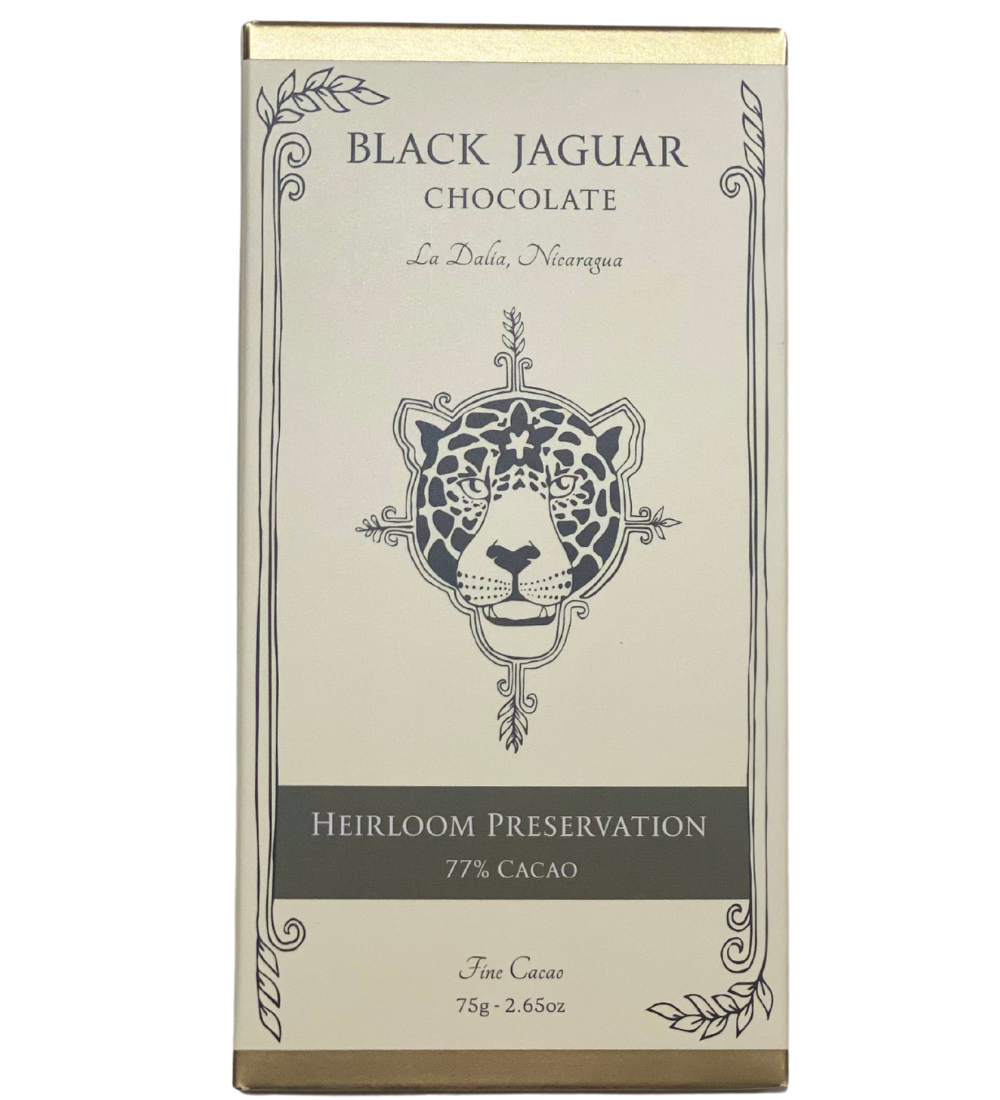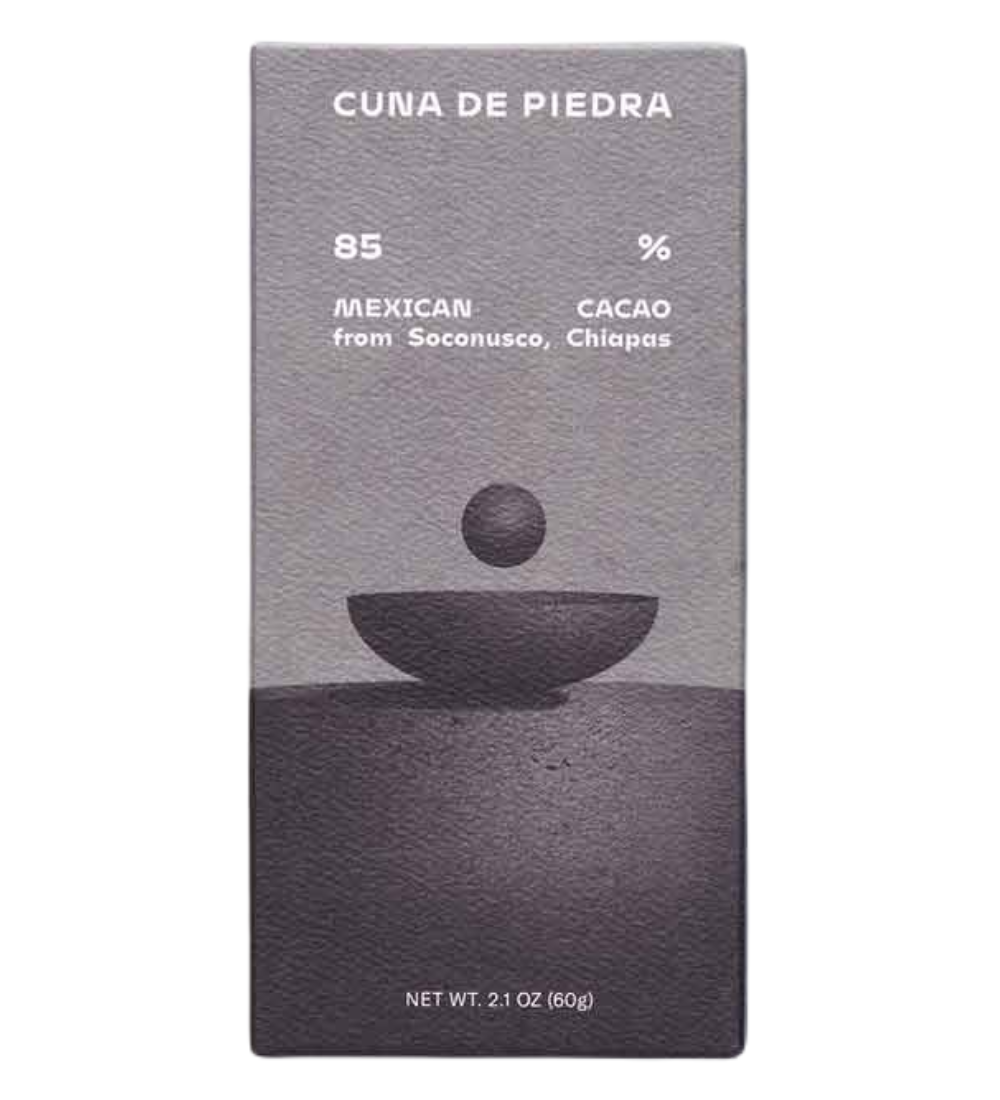Cette barre de lait végétalienne combine des noix de cajou du Burkina Faso avec du cacao ancestral Nacional Arriba cultivé dans la réserve forestière de Machu Chindal à Esmeraldas, en Équateur. Dix-huit agriculteurs du village de Mono Bravo cultivent, récoltent, fermentent et sèchent les haricots sous la direction d' Original Beans . Le cacao est beaucoup plus prononcé que les noix de cajou : la barre, tout comme son emballage, présente une couleur très foncée et un profil torréfié assorti, inhabituel pour une barre « au lait ». La saveur de la noix de cajou n'est pas aussi prononcée que celle de l'avoine ou des amandes, mais les noix confèrent une texture premium divinement crémeuse, se fondant avec le chocolat pour créer une gourmandise semblable à celle d'un fudge.
Karuna Lait de cajou noir 62 %
Origine du cacao : Équateur
Pays producteur : Italie
Poids : 60g
Adding product to your cart
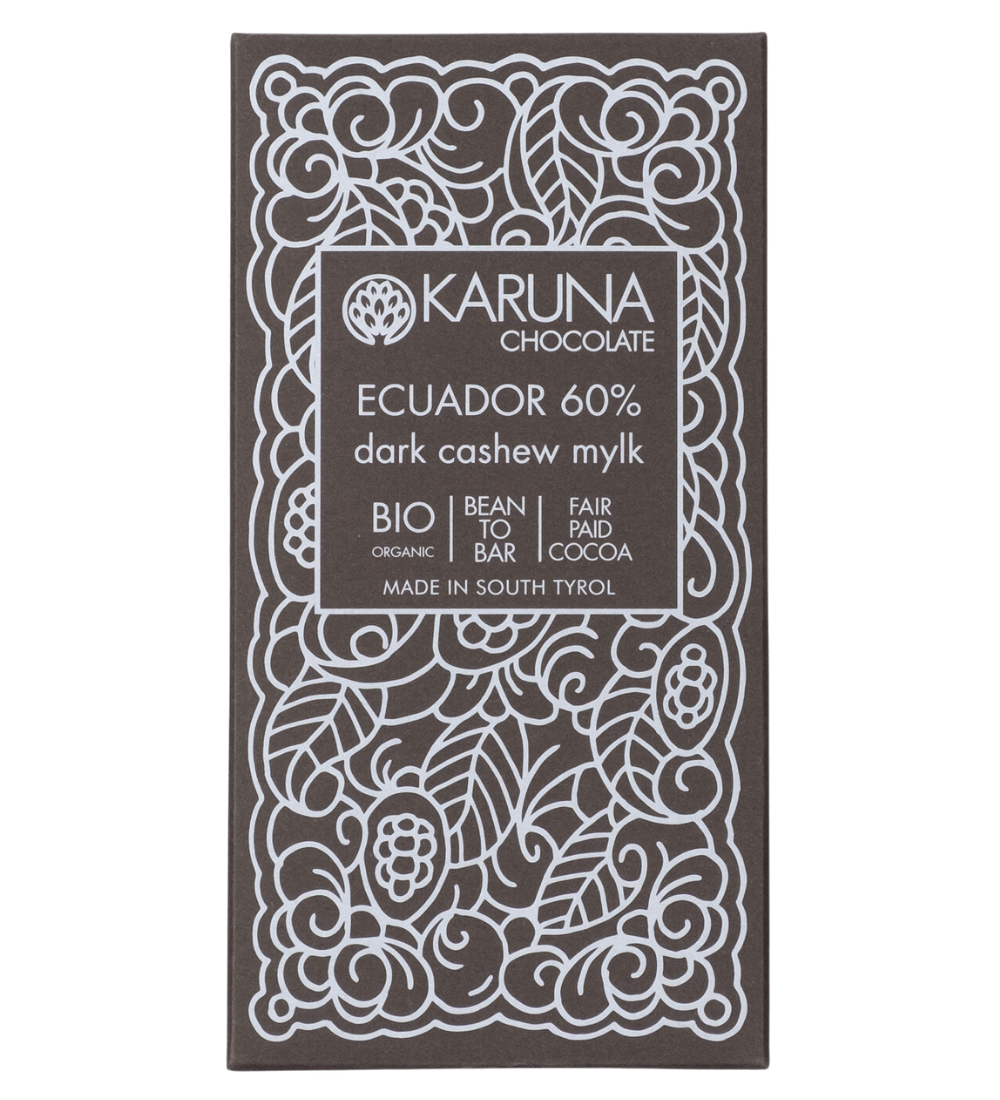
Karuna Lait de cajou noir 62 %
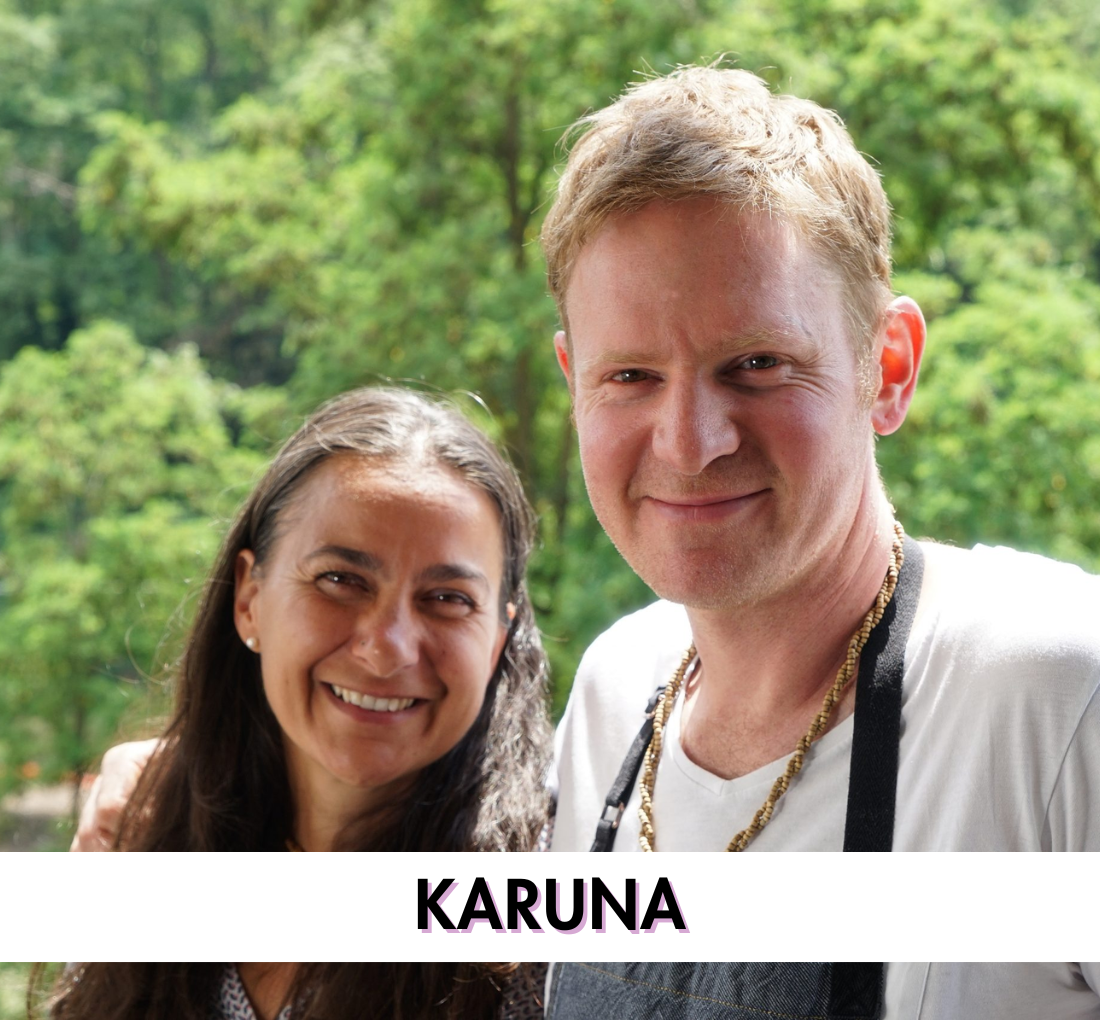
Katya and Armin, the couple behind Karuna, operate from the heart of the Italian Alps, but their journey with chocolate began in a very different place: southern India (an inspiration evoked in the beautiful shapes on their bars and packaging). There, they were introduced to locals growing and producing cocoa, which sparked their curiosity. They soon learned about hobbyists in America making single-origin chocolates by hand, a concept that reminded them of how the craft beer renaissance was driven by homebrewers, which had inspired so much innovation and creativity. Excited by the prospect of a new hobby, Katya and Armin began making chocolate using basic tools. Upon returning to Italy, they found only a few artisan manufacturers in Europe making the kind of chocolate they desired. Undeterred, they decided to follow in the footsteps of the homebrewers and create the chocolate they wanted themselves. Thus, Karuna Chocolate was born.
Achetez plus KarunaEsmeraldas is a province in northwestern Ecuador, bordering the Pacific Ocean and western Colombia. Renowned for its beaches, pristine forests, seafood, and vibrant indigenous and Afro-Ecuadorian culture - Esmeraldas' population is predominantly Mestizo and Afro-Ecuadorian - the region attracts a lot of tourism. In rural areas, agriculture is the primary livelihood, with crops like coffee, bananas, and tobacco. The capital city, also named Esmeraldas, is the terminus of the Trans-Ecuadorian Pipeline from the northeastern oil fields, with local industries focused on manufacturing, timber, chemicals, and oil. As result, environmental concerns have risen, especially around management of the Gran Chaco, South America's second-largest forest. Esmeraldas is also known throughout Latin America for its significant contribution of players to the Ecuador national football team.
